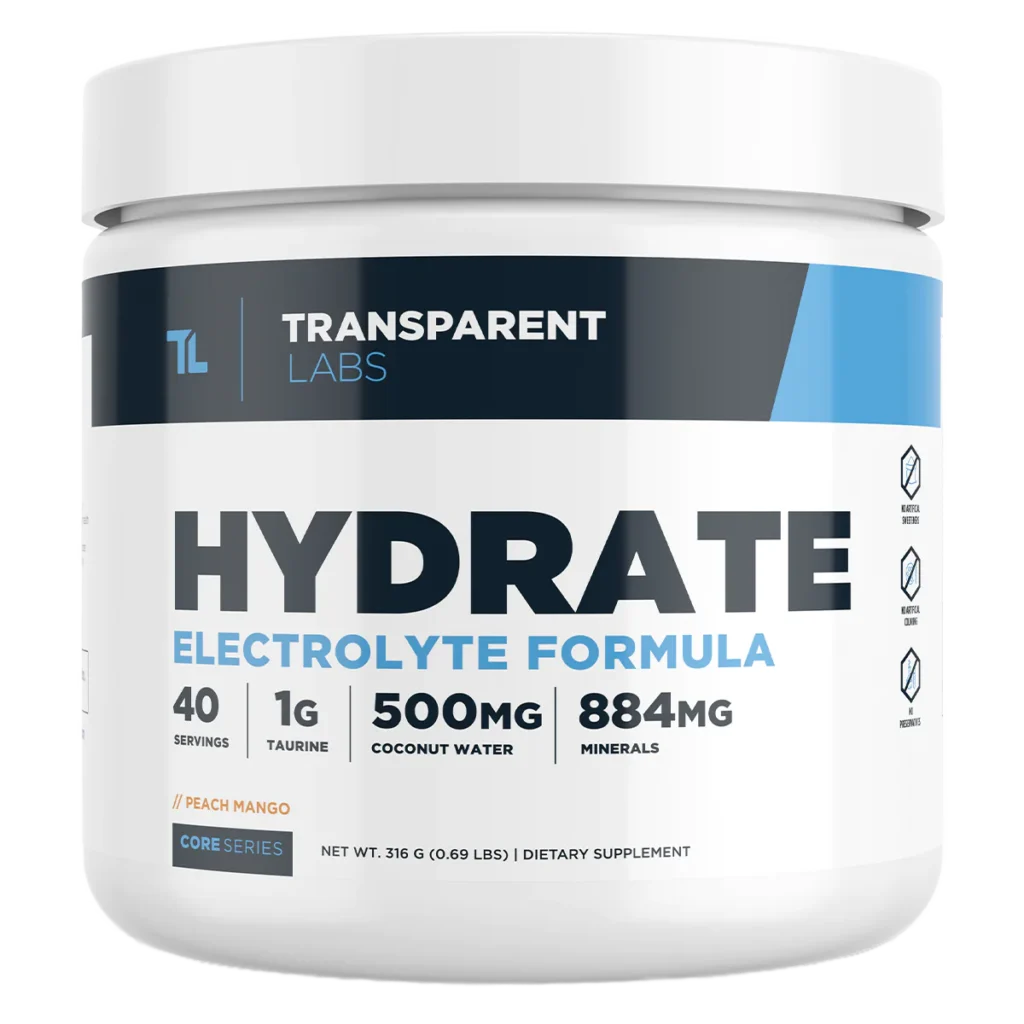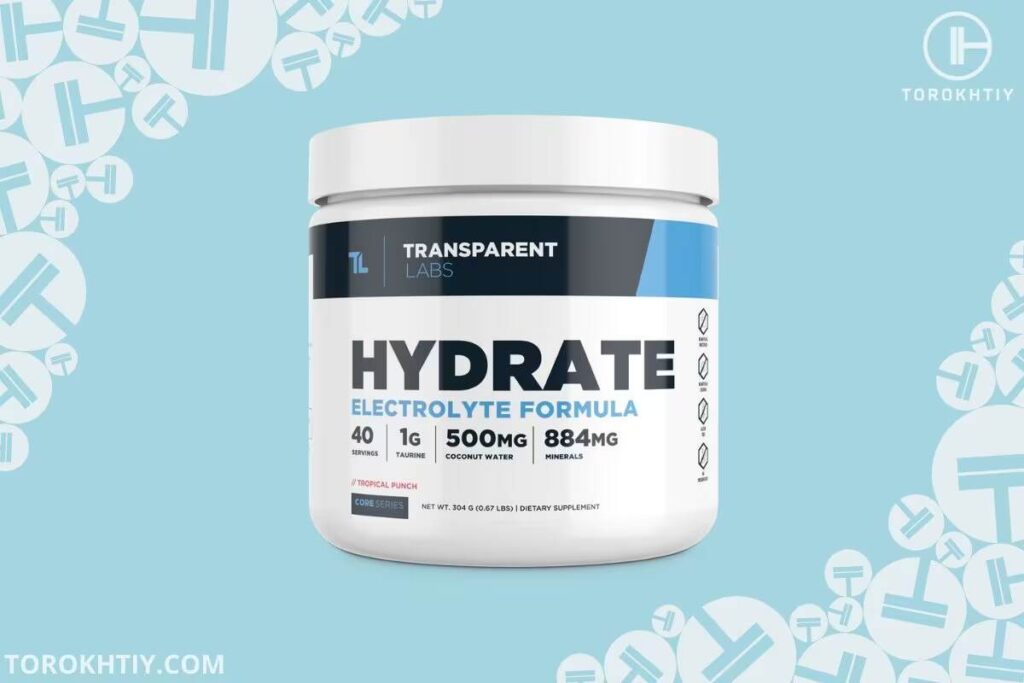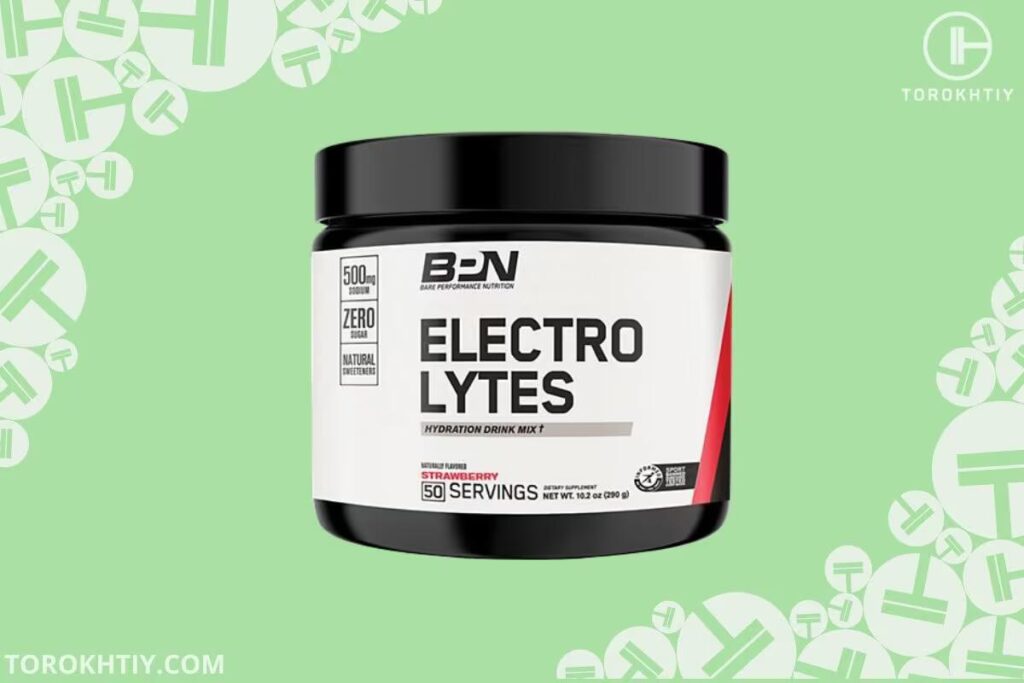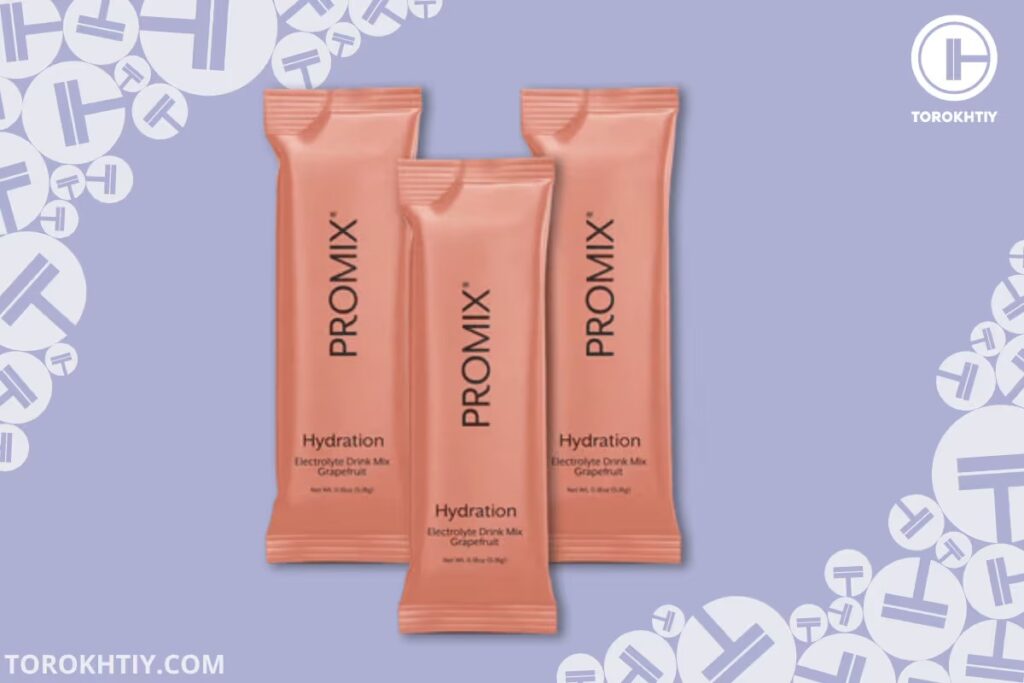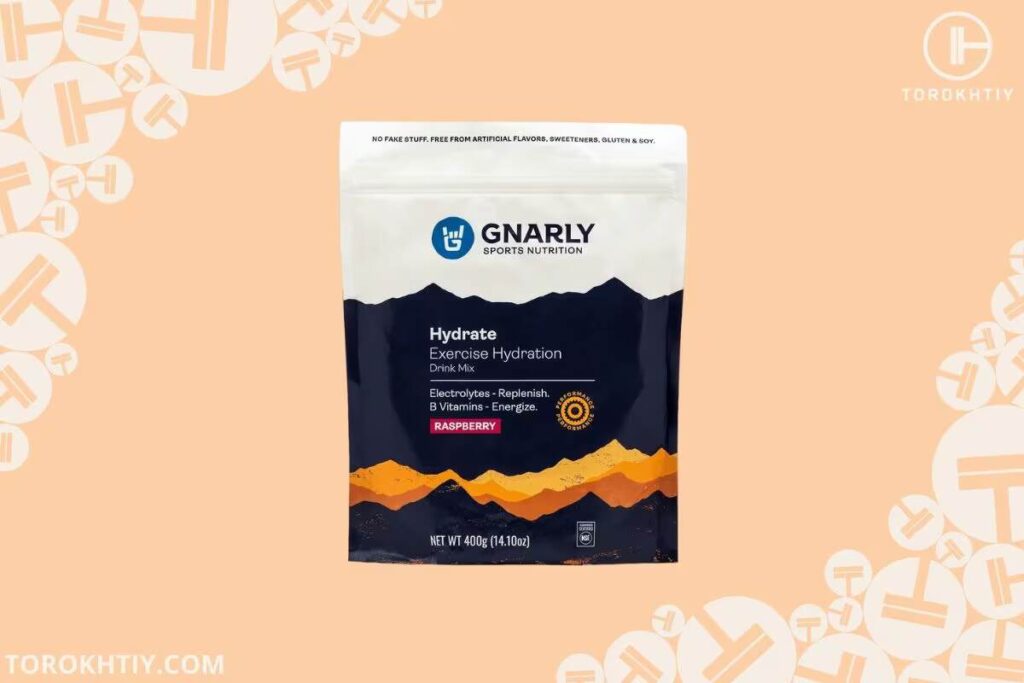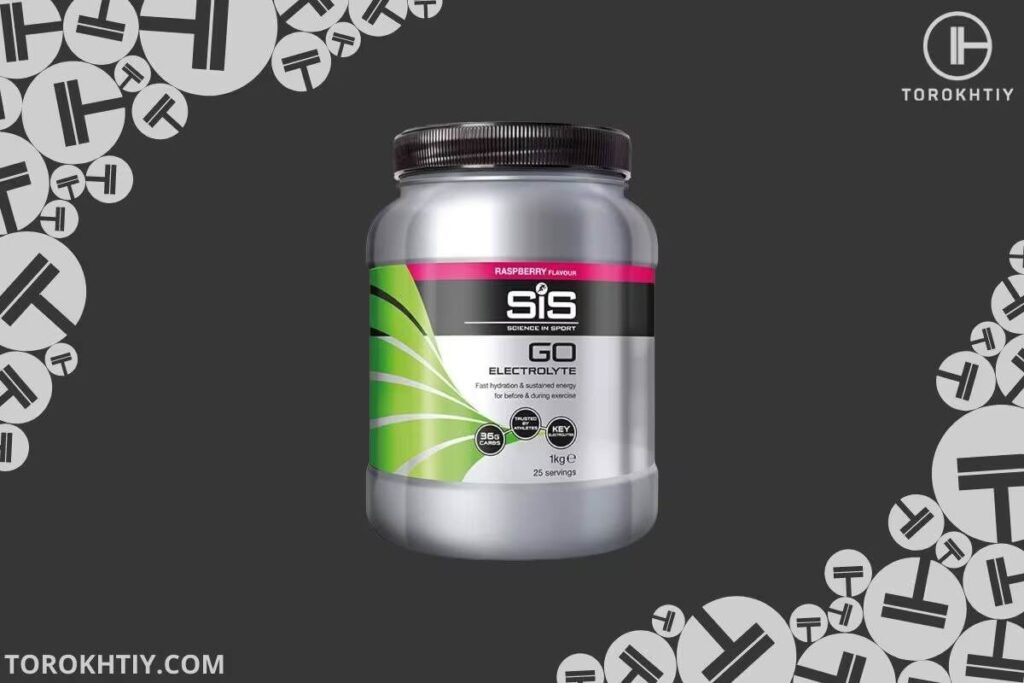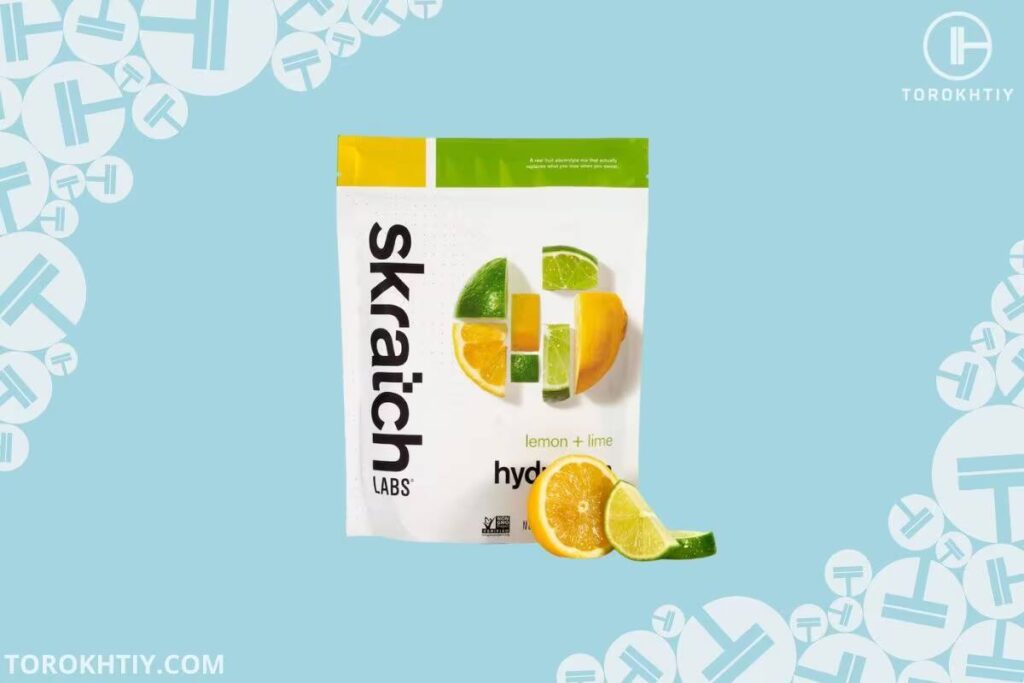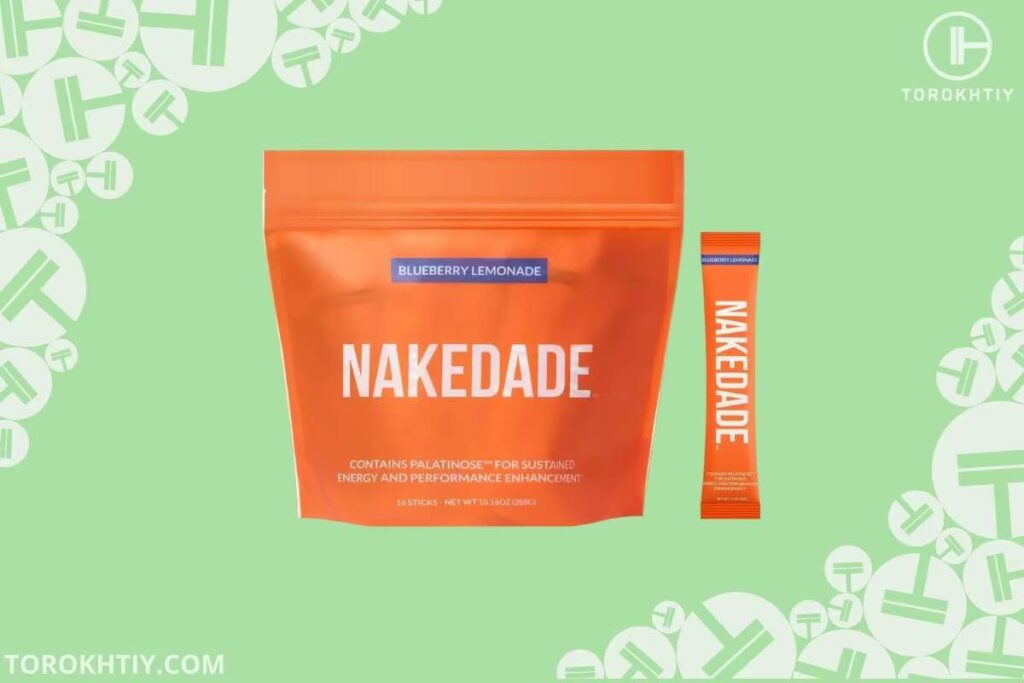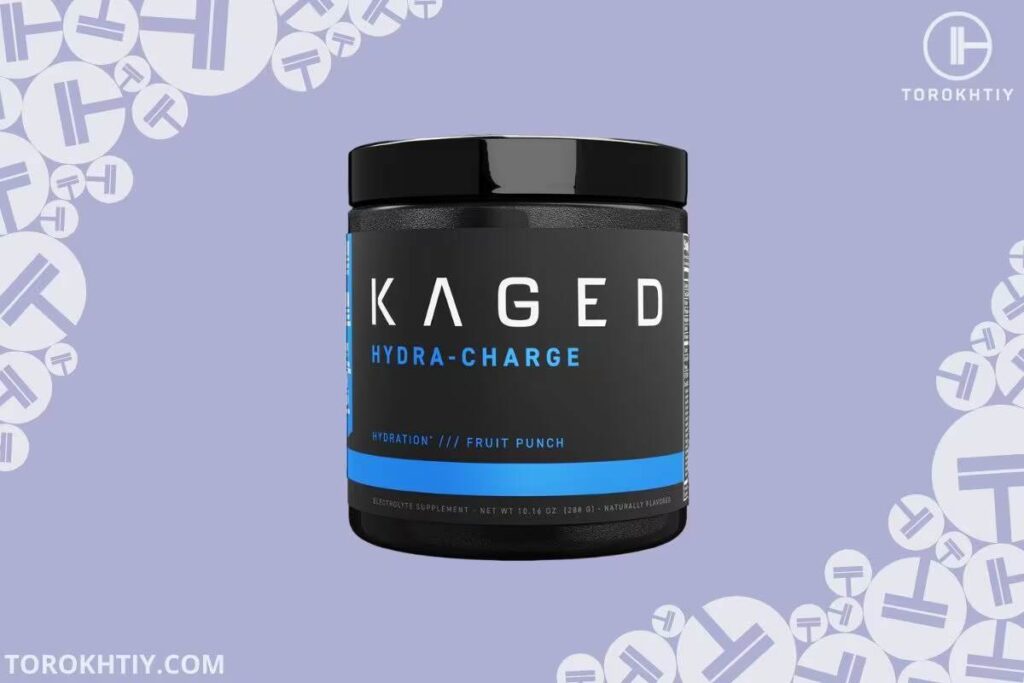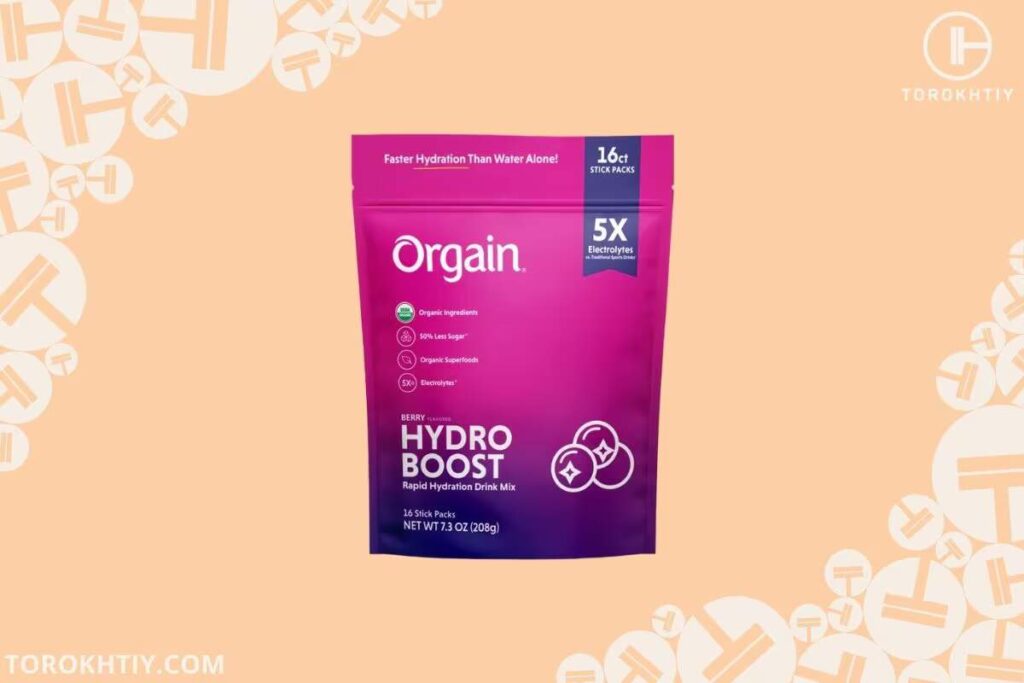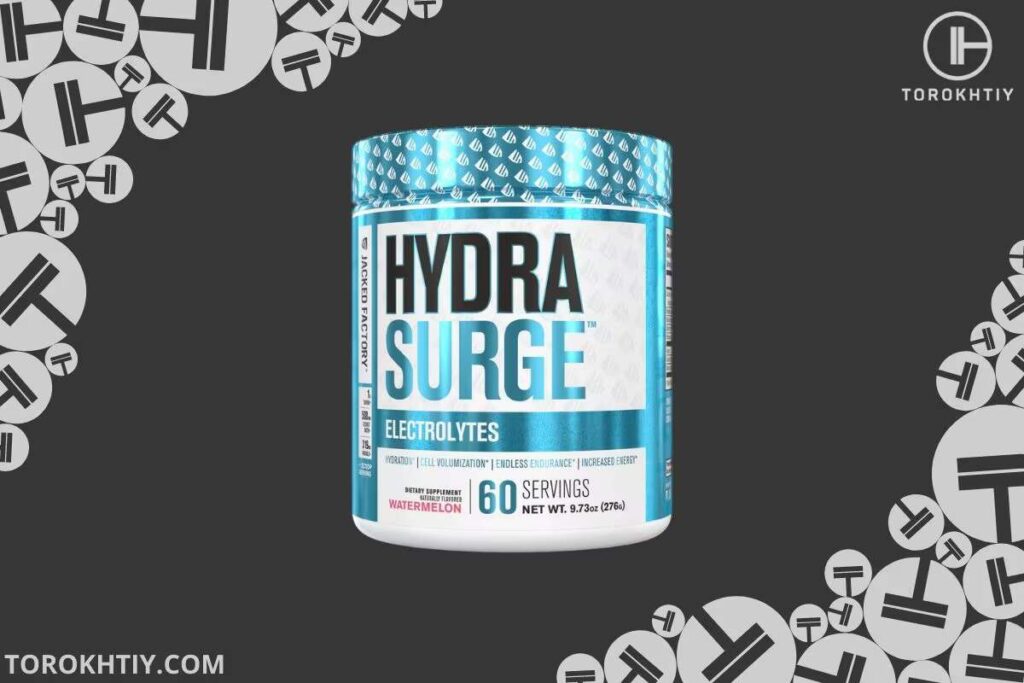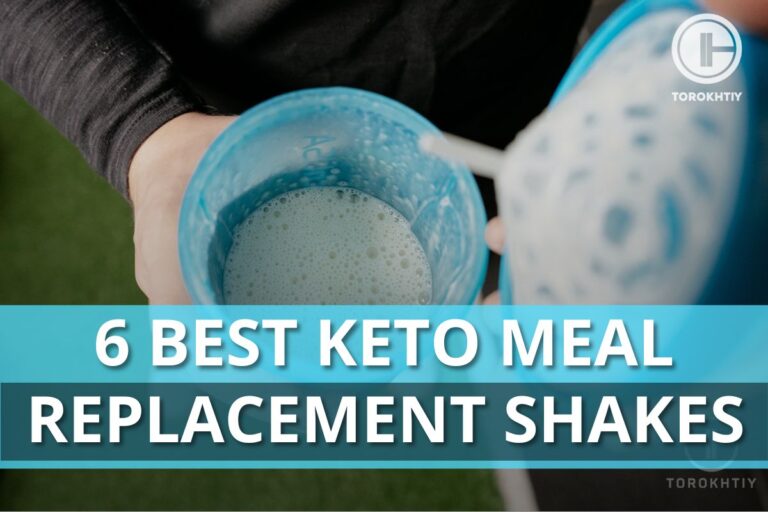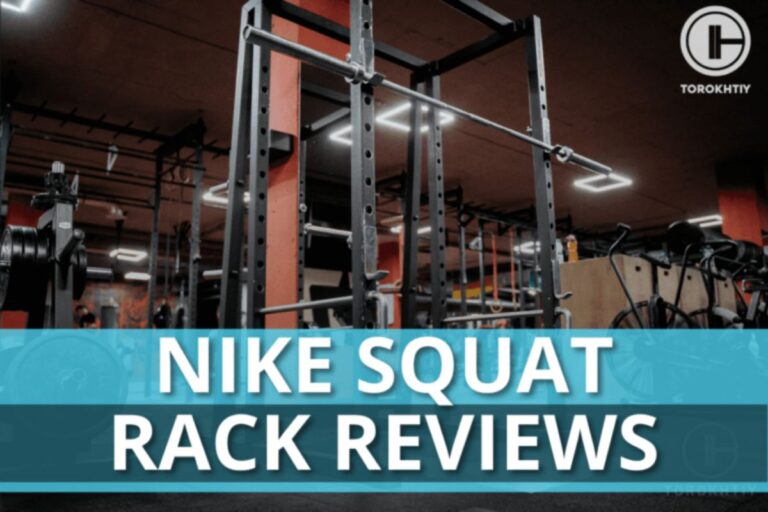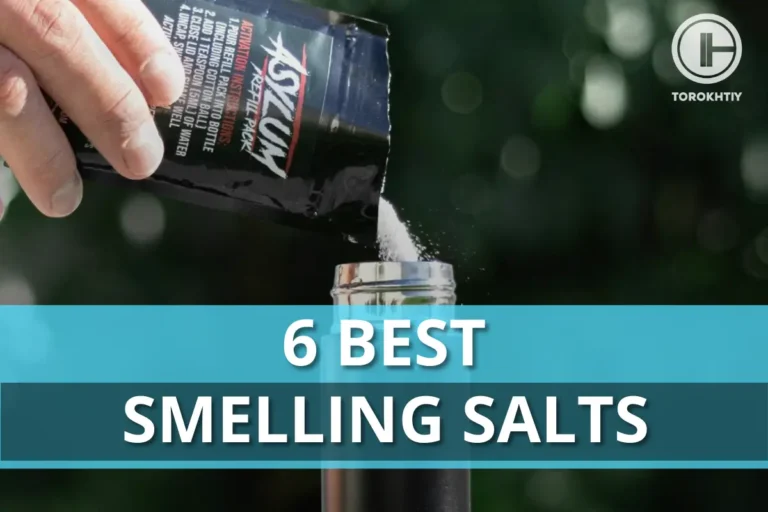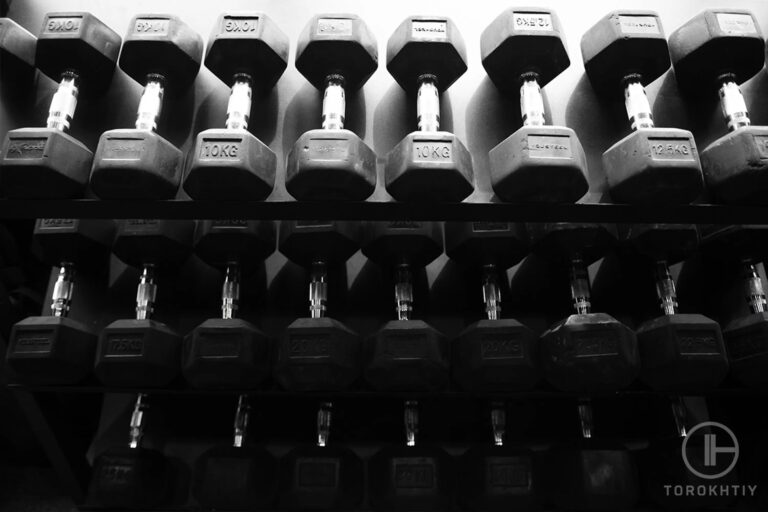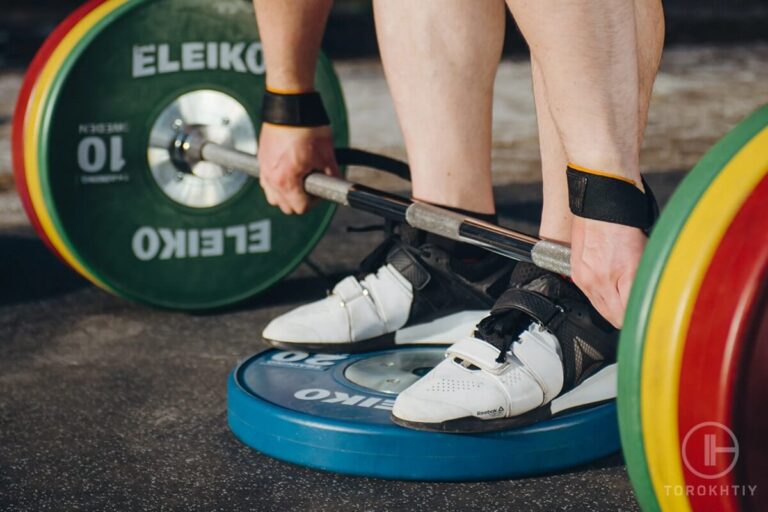10 Best Electrolyte Powders in 2026
Reviewed by: Jacek Szymanowski (Certified Nutritionist, S&C specialist, M.Sc.Eng. Biotechnology)
Looking for the best electrolyte powder? Wait, at least until you read this article! Due to the active marketing of sports supplements, including electrolyte replacement powders, many people blow their budget on stuff they don’t really need. In this article, we will go over the key considerations for this type of supplement.
You will also get a general decision-making algorithm with a handy table about the specific situations in which you may need powdered electrolytes. So stay with us until the end of the article!
In a hurry?
In a hurry and can’t keep reading? How about you check out the Transparent Labs Hydrate.
Transparent Labs’ HYDRATE offers a sodium content suited for ultra-endurance athletes, while its electrolyte composition includes potassium, calcium, and magnesium, although specific usage recommendations are lacking.
In this article, our team of certified nutritionists and professional athletes, has reviewed 25 electrolyte powders based on four key criteria. From this comprehensive evaluation, we have selected only the top 10 products for our list.
The majority of these products were tested over a period of 5 weeks, alongside an analysis of hundreds of online user reviews. Our list is updated regularly, and we encourage you to share your experiences in the comments section at the end.
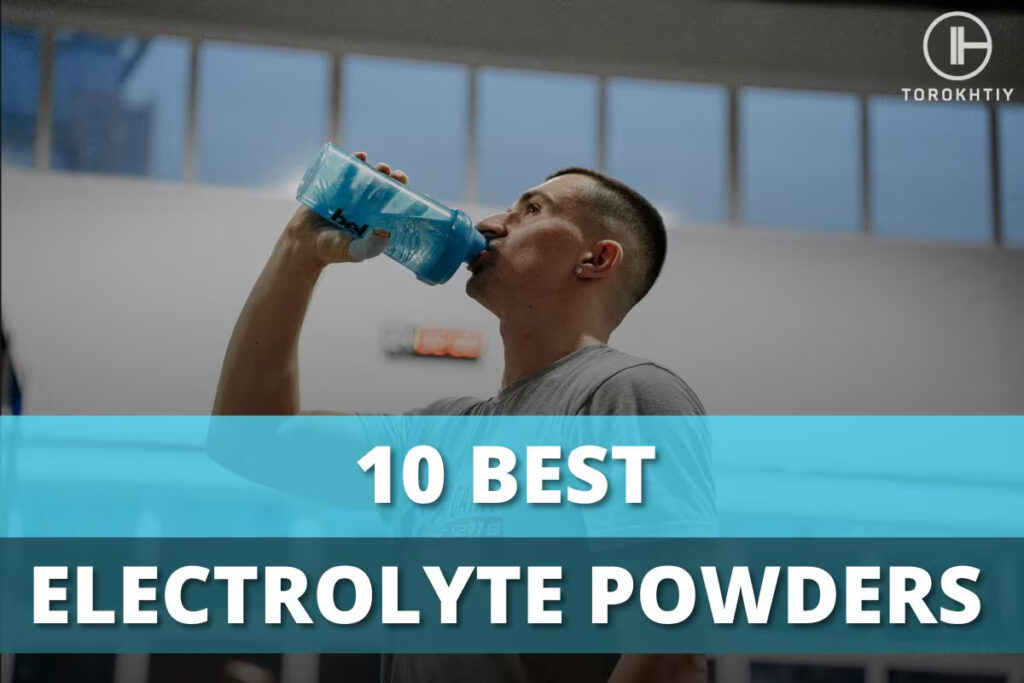
Top 10 Electrolyte Powders Reviewed
- HYDRATE by Transparent Labs – Best Overall
- BPN Electrolytes – Best Third-Party Tested
- Promix Electrolyte Drink Mix – Best Value for Money
- Hydrate by Gnarly Nutrition – Best Tasting
- Sis Electrolyte Powder – Best for Sports Drinks
- Skratch Labs Hydration
- Electrolytes Powder by Naked
- Hydra-Charge® by Kaged – Best With Antioxidants
- Hydro Boost by Orgain – Best Organic
- Hydrasurge by Jacked Factory – Best Low Sodium
| Product | Total | Electrolytes per Serving | Taste | Label Transparency | Price/ Quality |
|---|---|---|---|---|---|
| Transparent Labs | 39.5 | 10 | 9.5 | 10 | 10 |
| BPN Electrolytes | 39 | 10 | 9 | 10 | 10 |
| Promix | 39 | 10 | 9.5 | 9.5 | 10 |
| Gnarly Nutrition | 38.5 | 9 | 10 | 10 | 9.5 |
| SIS Electrolyte | 38 | 9.5 | 9.5 | 9.5 | 9.5 |
| Skratch Labs | 37.5 | 9.5 | 9.5 | 9.5 | 9 |
| Naked Nutrition | 37 | 9 | 9.5 | 9.5 | 9 |
| Kaged | 37 | 8.5 | 10 | 10 | 8.5 |
| Orgain | 36 | 9 | 9 | 9.5 | 8.5 |
| Jacked Factory | 36 | 8.5 | 9 | 9.5 | 9 |
1. HYDRATE by Transparent Labs – Best Overall
- Form: Powder
- Flavors: Tropical Punch, Peach Mango
- Key Ingredients: Sodium
- Additional Ingredients: Potassium, Magnesium, Calcium, Coconut Water Powder, Taurine
- Sodium per Serving: 500 mg
- Servings: 40 servings
- Company Founded: 2015
- Recommended by Athletes: Hafþór Björnsson, Paul Sklar, P A U L I N A
Considering the amount of sodium per serving and the guidelines from the Australian Sports Commission on sodium replacement during exercise, HYDRATE from Transparent Labs is an ideal candidate for the leadership position in this ranking.
For ultra-endurance athletes, 500 mg of sodium per liter of fluid falls into a good range for maintaining the balance between preserving thirst drive and palatability of electrolyte mix.
I will use 500 mg of sodium per serving as a standard when reviewing all of the following products, and that’s how much sodium the HYDRATE serving contains. Among other electrolytes, this product also contains 250 mg of potassium, along with 84 mg of calcium and 50 mg of magnesium.
The only thing I don’t like about this product is the manufacturer’s recommendation to mix one serving with 8-12 oz of water. It is also recommended to use up to 3 servings per day, without explaining in which specific cases this may actually be needed. In general, the majority of manufacturers share the lack of non-specific recommendations.
I can partially understand them, because different situations may require different dosages and concentrations of sodium in the drink. However, I would still like users to have at least some explanation from the manufacturers.
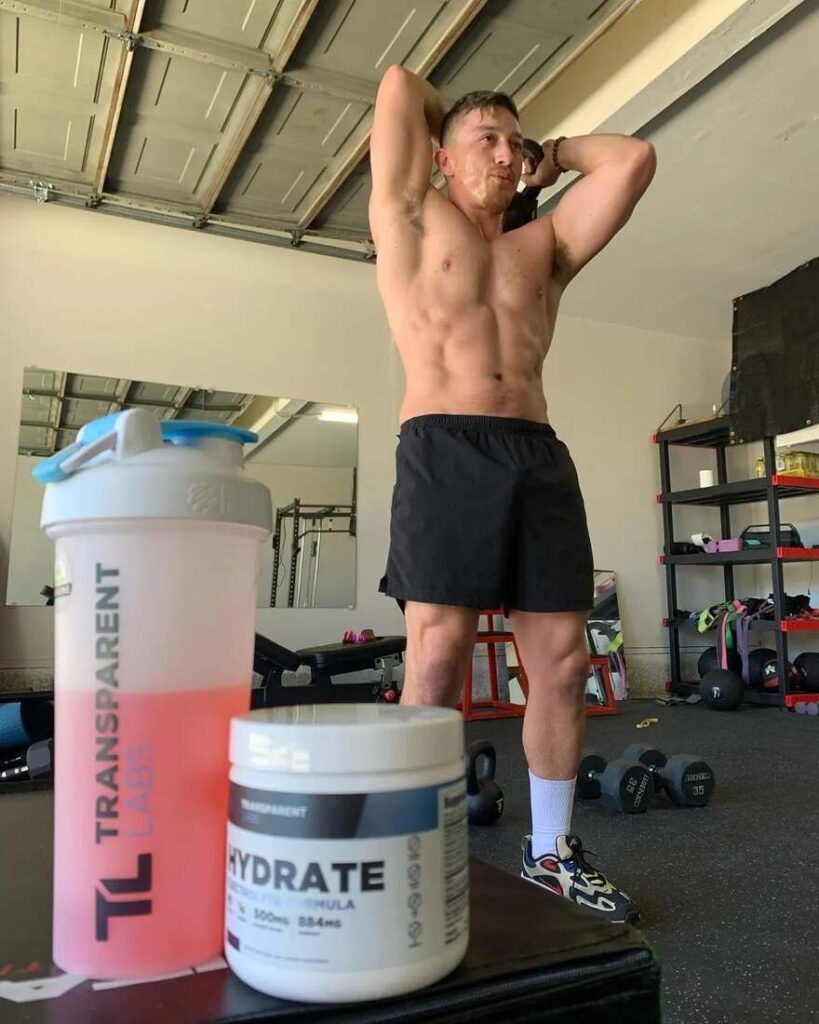
The Australian Sports Commission recommends mixing 500-700 mg of sodium per 1 liter when using electrolytes drinks during prolonged exercises. Given the fact that during very long training sessions with profound sweating, it is important to prevent dehydration, this ratio is much more optimal and practical. Also, this ratio of sodium to water will reduce the risk of gastrointestinal problems.
In general, considering the composition of the formula and the cost per serving, this product looks the most attractive in this rating and receives its award as the best electrolyte supplement. Given the composition of electrolytes per serving, HYDRATE can be great for triathletes, ultra-marathoners and other athletes who train for hours and sweat a lot, especially in conditions of hot and / or humid weather.
Transparent Labs’ HYDRATE is a top electrolyte supplement, following Australian Sports Commission’s sodium recommendations for prolonged exercises, making it a practical choice for endurance athletes in hot and humid conditions.
Positives:
Could be better:
2. BPN Electrolytes – Best Third-Party Tested
- Form: Powder
- Flavors: Salted Watermelon, Strawberry, Lemon Lime
- Key Ingredients: Sodium
- Additional Ingredients: Potassium, Chloride, Magnesium, Calcium, Vitamin B6
- Sodium per Serving: 500 mg
- Servings: 50 servings
- Company Founded: 2012
- Recommended by Athletes: Nico Felich, Brianna Cope
BPN Electrolytes came second in this ranking, half a point behind the leader due to a significant number of complaints about the taste.
However, it is still one of the best hydration powders on the market, which is suitable for athletes who train for many hours for endurance or engage in sports that have mixed types of exercise - aerobic and anaerobic, where high intensity, long duration and profound sweating are present. Especially if training takes place in conditions of high temperatures and humidity.
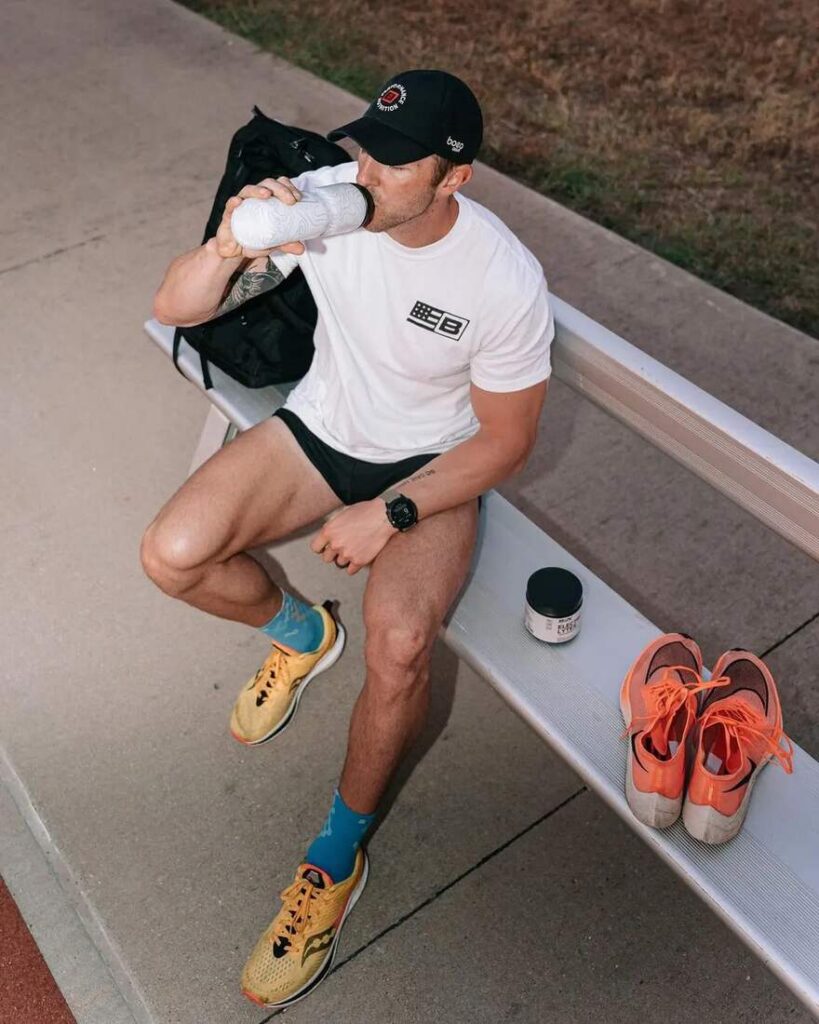
BPN Electrolytes contains 500 mg of sodium per serving. In addition to sodium, a serving contains several other electrolytes: potassium, chloride, magnesium and calcium. However, keep in mind that sodium is the most important, as it is the focus of attention in the context of reducing the risk of developing hyponatremia, a potentially fatal condition. I will come back to this topic later.
This product can be considered one of the cleanest electrolyte powders, as it has been tested and certified for quality, purity and safety by NSF Certified for Sport®.
BPN Electrolytes ranks second for its robust hydration benefits, suitable for endurance and mixed exercise athletes, while addressing taste-related concerns, and holding the NSF Certified for Sport® certification for quality assurance.
Positives:
Could be better:
3. Promix Electrolyte Drink Mix – Best Value for Money
- Form: Powder
- Flavors: Grapefruit, Lemon Lime
- Key Ingredients: Sodium
- Additional Ingredients: Potassium, Magnesium, Vitamin C
- Sodium per Serving: 1000 mg
- Servings: 30 servings
- Company Founded: 2011
- Recommended by Athletes: Matt Zelaya, SOPHIE BARTELS, Joe Phair
Electrolyte Drink Mix from Promix is the perfect choice for the best hydration packets! This product is available in two forms - as a powder in a large package, as well as in the form of sachets. You have 2 flavors to choose from: Grapefruit and Lemon Lime. Brand indicates the level of sweetness for each of these flavors. Grapefruit has no sweetness and light flavor, while lemon lime has light sweetness and medium flavor.
Keep in mind that one serving contains as much as 1g of sodium. Although there is still no consensus on the optimal sodium replacement guideline during exercise, let me remind you that the recommended ratio of sodium to liquid is ~500-700 mg per 1 liter.
Thus, using a proportion of 500 mg of sodium per 1 liter of water, instead of 30 servings for $1.23, you will get 60 servings at a price of ~$0.6. That is why this product received the title of Best value for money.
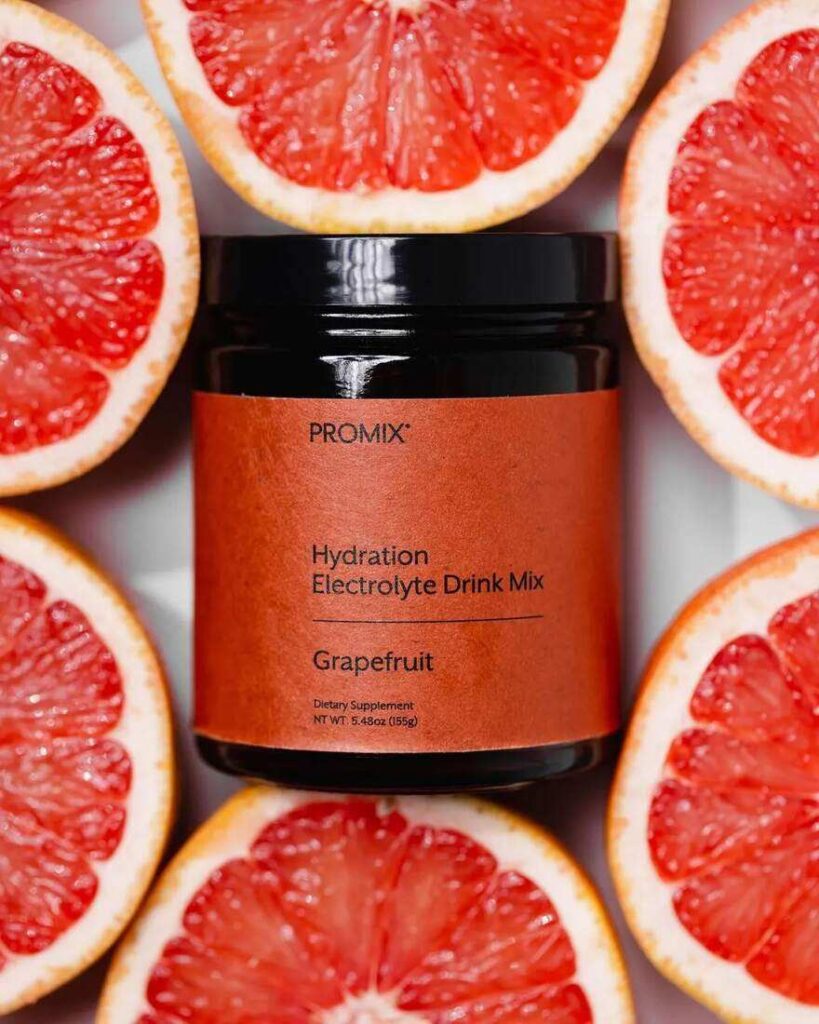
On the other hand, in conditions of heat (>25 °C/77 °F) and/or high humidity (>60%), a slightly higher amount of sodium per liter can be required during long-duration exercise. In this situation, 1 g of sodium per liter of water may be justified.
When mixing the drink, it may be better to stick to the upper range of the manufacturer's recommended water volume (32 oz). And that's assuming you need rehydration powder at all. I will also talk about this a little later.
Promix's Electrolyte Drink Mix is a standout choice for hydration packets, available in powder or sachet forms with Grapefruit and Lemon Lime flavors, lauded for its value and adaptability to different hydration requirements.
Positives:
Could be better:
4. Hydrate by Gnarly Nutrition – Best Tasting
- Form: Powder
- Flavors: Orange Pineapple, Raspberry, Ruby Red Grapefruit
- Key Ingredients: Sodium
- Additional Ingredients: Potassium, Magnesium, Calcium, Chloride, Vitamins B2, B3, B6, B9, B12, Carbohydrates
- Sodium per Serving: 250 mg
- Servings: 40 servings
- Company Founded: 2012
- Recommended by Athletes: Kyra Condie, Danny Parker
Hydrate by Gnarly Nutrition can be a good electrolyte drink powder for those who train intensively for 2 hours or more. The thing is, this product contains 250 mg of sodium per serving, which may not be enough for endurance athletes who run very long distances and sweat a lot, especially in heat and/or high humidity conditions (although this can be fixed by mixing 2 servings in one beverage).
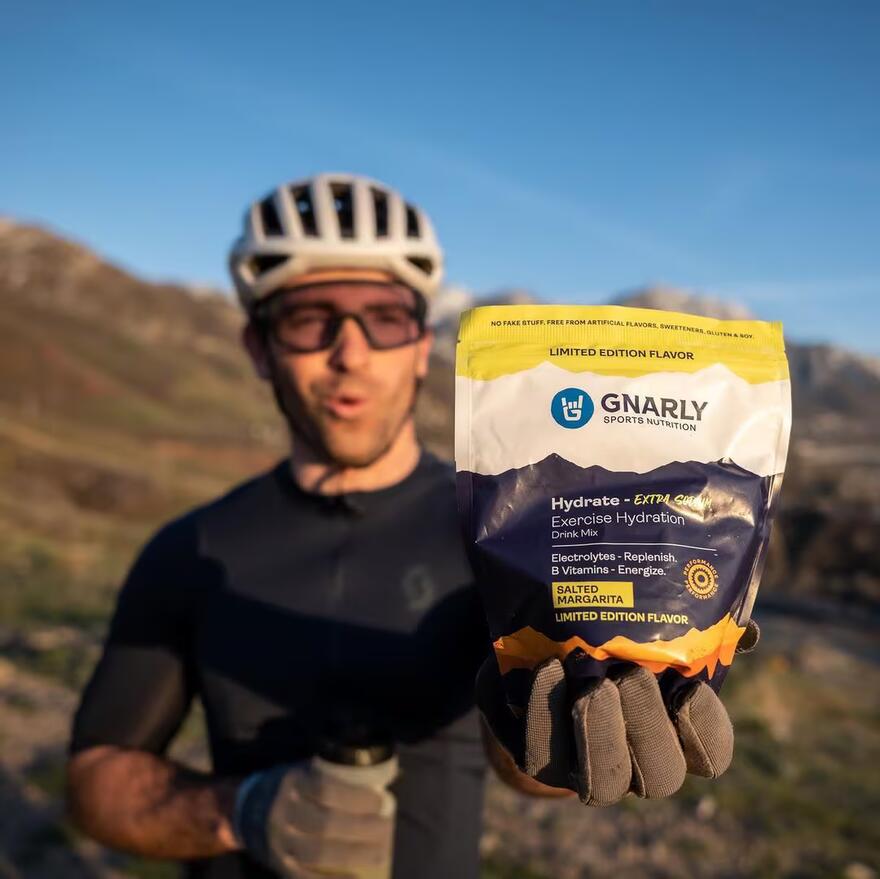
On the other hand, this product contains 5 B vitamins, as well as 7 g of carbohydrates. Therefore, if you really want a "light" electrolyte drink with a good taste and added vitamins, you can pay attention to this supplement. Especially if you don't mind a few grams of carbs in your drink.
This product is NSF Certified for Sport®, which is an undeniable plus. I will also note that the manufacturer recommends a good ratio of water to sodium per serving. However, in general, this best tasting electrolyte powder is inferior to the leaders of this rating in the amount of sodium per serving.
Gnarly Nutrition's Hydrate is a viable electrolyte drink powder for extended intense training, offering added vitamins and a carbohydrate content that might interest those seeking a lighter electrolyte option.
Positives:
Could be better:
5. SIS Electrolyte Powder – Best for Sports Drinks
- Form: Powder
- Flavors: Blackcurrant, Lemon and Lime, Orange, Tropical
- Key Ingredients: Sodium
- Additional Ingredients: Potassium, Calcium, Magnesium, Carbohydrates
- Sodium per Serving: 460 mg*
- Servings: 25 servings
- Company Founded: 1992
- Recommended by Athletes: Kaison Smith, Khris Middleton
SIS Electrolyte Powder is a product from the well-known brand Science in Sport, which is loved by many professional athletes. In addition to electrolytes, a serving contains 36 g of carbohydrates, making this product a suitable option for mixing into sports drinks.
*This product could have taken a higher position in this electrolyte powder review. However, in the “nutrition stats”, the brand listed the amount of salt per serving, which contains not only sodium, but also chloride. So there is some confusion here. As a sports nutritionist, I would like to see the exact amount of sodium.
Only in the description on the official website it is indicated that the serving contains 20 mmol of sodium, which corresponds to 460 mg (given that 1 mmol of sodium = 23 mg).
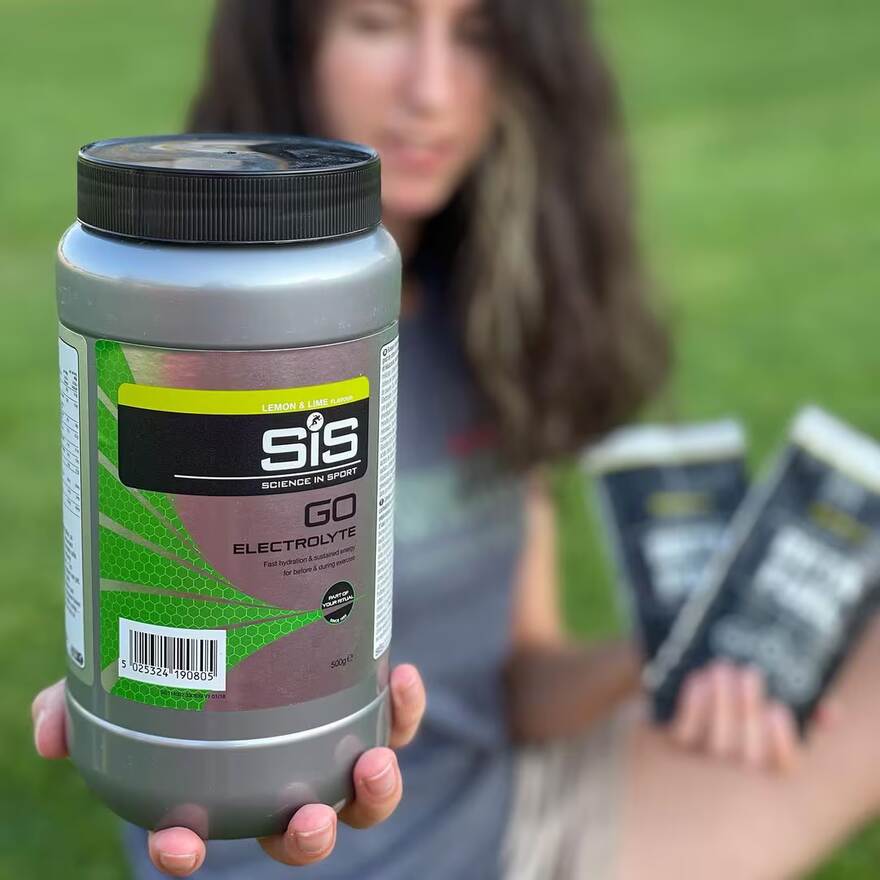
Second, according to the official website, mixing one serving with 500 ml of liquid, you will get a solution with 6% carbohydrates. However in fact for every 100 ml you will get 7.2 g, not 6 g of carbohydrates.
Therefore, such a solution will have 7.2% carbohydrates. This still falls within the range for rapid delivery of fluid and fuel, as well as maximizing gastric tolerance and palatability. However, the manufacturer should provide more accurate information.
SIS Electrolyte Powder by Science in Sport provides a blend of electrolytes and carbohydrates, catering to athletes' hydration and energy needs, while potential inconsistencies in nutritional details warrant attention.
Positives:
Could be better:
6. Skratch Labs Hydration
- Form: Powder
- Flavors: Lemon + Lime, Strawberry Lemonade, Raspberry Limeade, Fruit Punch, Orange, Pineapple, Variety Pack
- Key Ingredients: Sodium
- Additional Ingredients: Potassium, Magnesium, Calcium, Vitamin C, Carbohydrates (*Caffeine)
- Sodium per Serving: 380 mg
- Servings: 20-60 servings
- Company Founded: 2012
- Recommended by Athletes: Avery Stumm, Meghann Featherstun
Like the previous product, Skratch Labs Hydration offers a powder that contains electrolytes and a significant amount of carbohydrates. Therefore, it is a sports drink mix, not just an electrolyte drink powder.
One serving contains 380 mg of sodium and 20 g of carbohydrates. As with the previous product, there is also some confusion regarding the carbohydrate solution. According to the official website, for every 100 ml of liquid, you will get 4 g of carbohydrates. However, in order to obtain such a solution, it is necessary to specify not the range of the liquid volume, but the specific volume.
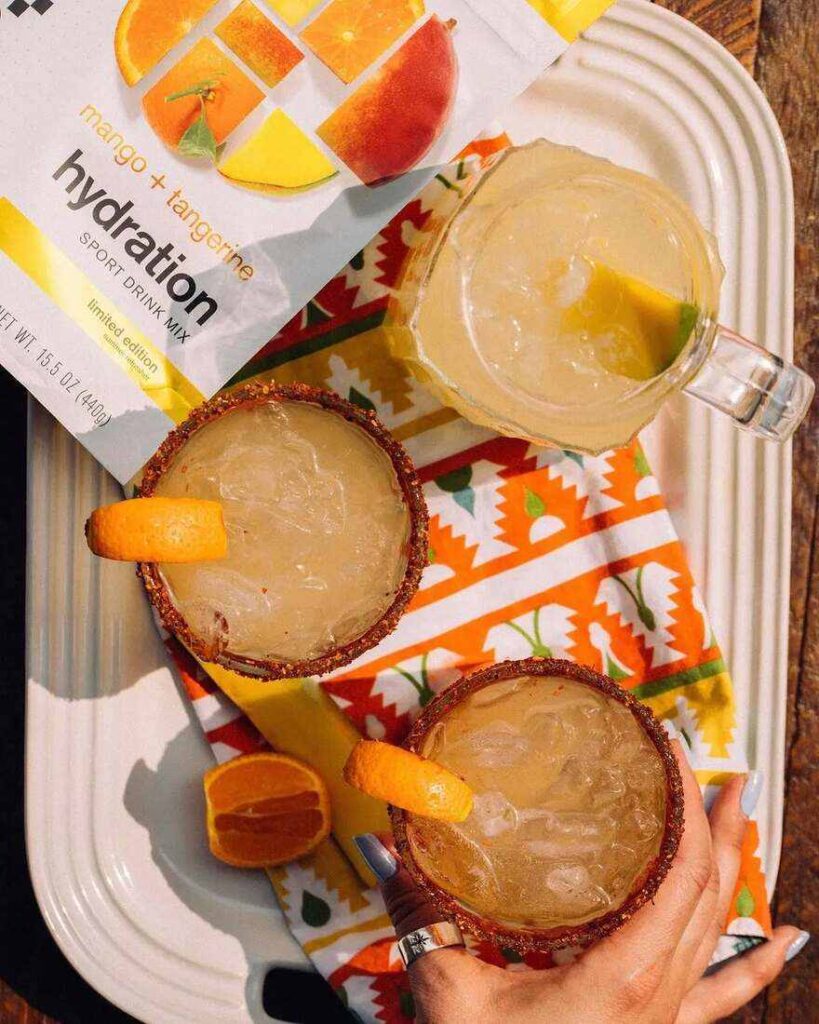
For example, the general range of water volume recommended by brand is 12-16 oz (~355-475 ml). However, at the lower range you will get 5.6 g of carbs per 100 ml (20g of carbs divided by 3.55), while at the upper range - 4.2 g of carbs per 100 ml (20g of carbs / 4.75). This is still in the good range, however the manufacturer indicates that the solution has 4 g carbohydrates per 100 ml.
Please note that depending on the selected taste, you can buy a package of 20 and / or 60 servings. *It is also worth considering that the raspberry limeade flavor contains 50 mg of caffeine. In general, this is a very good supplement that definitely deserves its place in the best electrolyte powder reviews.
Skratch Labs Hydration stands out as a versatile sports drink mix that combines electrolytes and carbohydrates, available in a range of flavors and serving sizes, making it a strong contender in the realm of electrolyte powder reviews.
Positives:
Could be better:
7. Electrolytes Powder by Naked
- Form: Powder
- Flavors: Strawberry Lemonade, Citrus, Blueberry Lemonade
- Key Ingredients: Sodium
- Additional Ingredients: Potassium, Calcium, Carbohydrates
- Sodium per Serving: 330 mg
- Servings: 16 sticks packs
- Company Founded: 2014
- Recommended by Athletes: Daniel Victor, Hope, Danica Johnson
The next best hydration powder in this ranking is Electrolytes Powder by Naked. One serving of this product contains 330 mg of sodium, 13-15 g of carbohydrates (depending on the flavor you choose), and the most potassium of any product in this review at 285 mg.
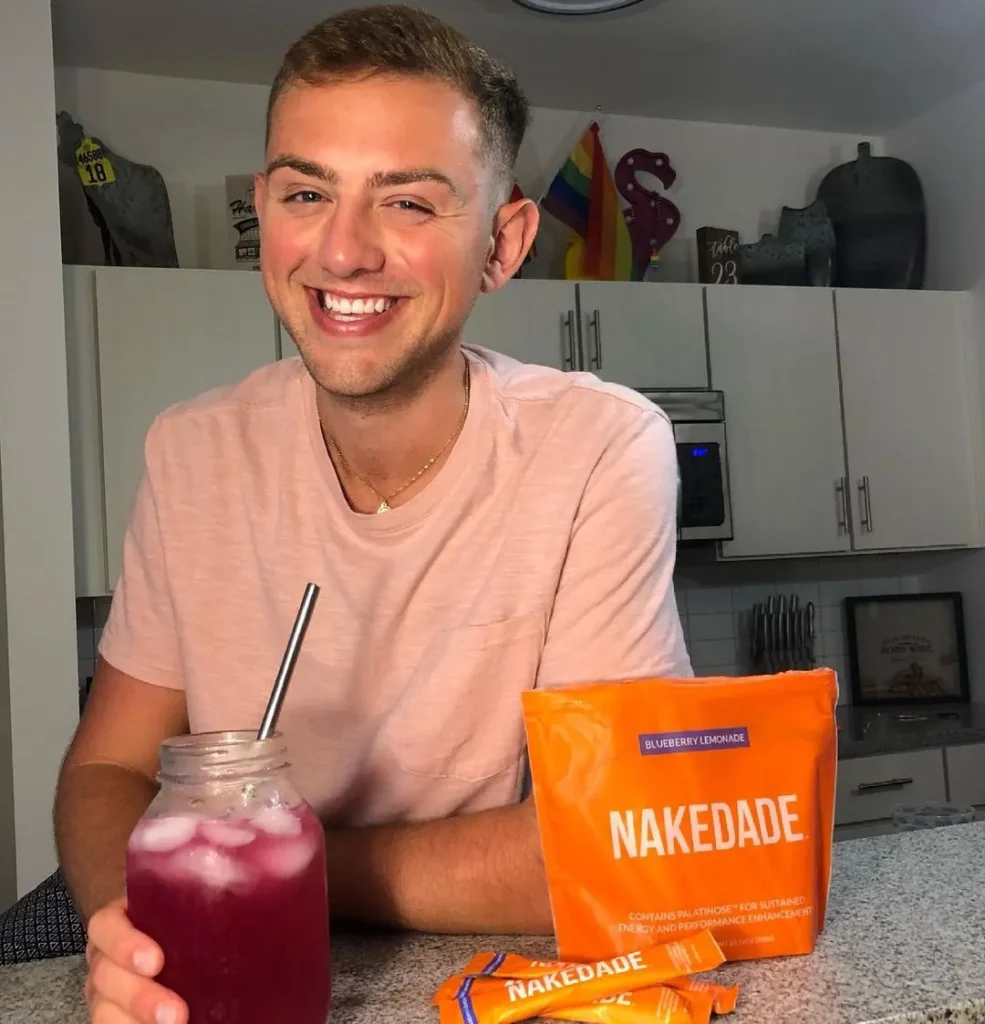
For convenience, each serving of the powder is packed in sticks packs, so you do not need to measure the required serving with a spoon. Simply add the powder to a bottle of water and give it a good shake.
There are no artificial sweeteners in this product, so if you are concerned by these ingredients in many other electrolyte supplements, Naked may be your choice. Disadvantages include only 16 servings per container and high cost per serving.
Naked Electrolytes Powder offers a convenient and natural hydration solution with stick packs containing sodium, potassium, and carbohydrates in various flavors, making it a solid option for those seeking electrolyte supplementation.
Positives:
Could be better:
8. Hydra-Charge® by Kaged – Best With Antioxidants
- Form: Powder
- Flavors: Fruit Punch, Glacier Grape, Strawberry Yuzu, Hibiscus Pear, Lemon Lime, Pink Lemonade, Orange Mango, Apple Limeade
- Key Ingredients: Sodium
- Additional Ingredients: Potassium, Magnesium, Calcium, Phosphorus, Coconut fruit water powder, Taurine, Antioxidant blend
- Sodium per Serving: 115 mg
- Servings: 60 servings
- Company Founded: 2014
- Recommended by Athletes: Farren Morgan, Luis Colon, Kayla Martin
Hydra-Charge® from Kaged contains the lowest sodium per serving at 115 mg. For this reason, this product can only be considered as an electrolyte water additive.
Hydra-Charge® also contains a blend of antioxidants and is certified by Informed Sport. You have a total of 8 flavors to choose from. If you are engaged in recreational fitness and you absolutely need to drink a palatable beverage (you don't like to drink plain water), you can pay attention to this product. However, consider that for the average fitness enthusiast electrolyte drinks are not necessary at all.
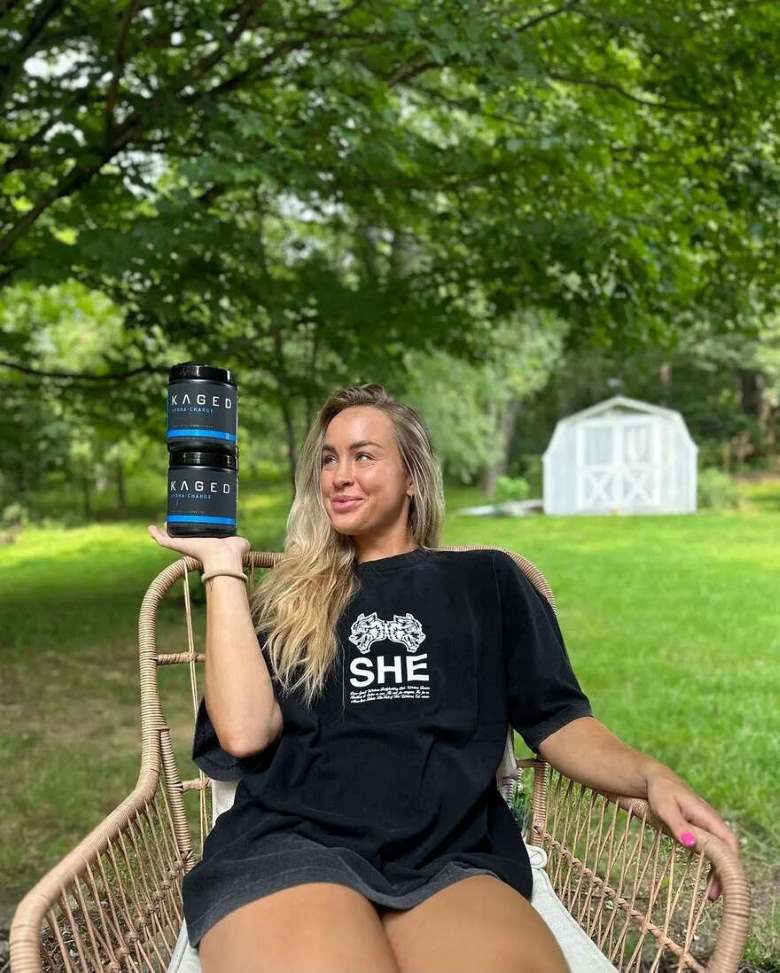
On the other hand, if you're using dietary supplements as some kind of mandatory ritual and really want to add some electrolytes, then at least don't use supplements with a lot of sodium per serving. Hydra-Charge® fits this role very well.
Kaged Hydra-Charge® offers a low-sodium option for those seeking an electrolyte water additive, featuring antioxidant blends and various flavors, making it a suitable choice for individuals looking for a palatable beverage with added electrolytes.
Positives:
Could be better:
9. Hydro Boost by Orgain – Best Organic
- Form: Powder
- Flavors: Berry, Lemon Lime, Orange Tangerine, Mango, Variety Pack
- Key Ingredients: Sodium
- Additional Ingredients: Chloride, Potassium, Calcium, Vitamin C, Carbohydrates
- Sodium per Serving: 300 mg
- Servings: 8 or 16 sticks packs
- Company Founded: 2008
- Recommended by Athletes: Lauren Hope, Etienne Maurice
If you are looking for "clean electrolyte powder" and for you it is equivalent to an organic supplement, you can pay attention to Hydro Boost by Orgain. It is a mix with a relatively low amount of carbohydrates - 12-13 grams per serving.
A serving contains 300 mg of sodium, 420 g of chloride, as well as 160-180 mg of potassium and a small amount of calcium. In addition, you will also get 45 mg of vitamin C. This is a very convenient product, because it is packed in stick packs. You can choose one of five tastes or a variety pack.
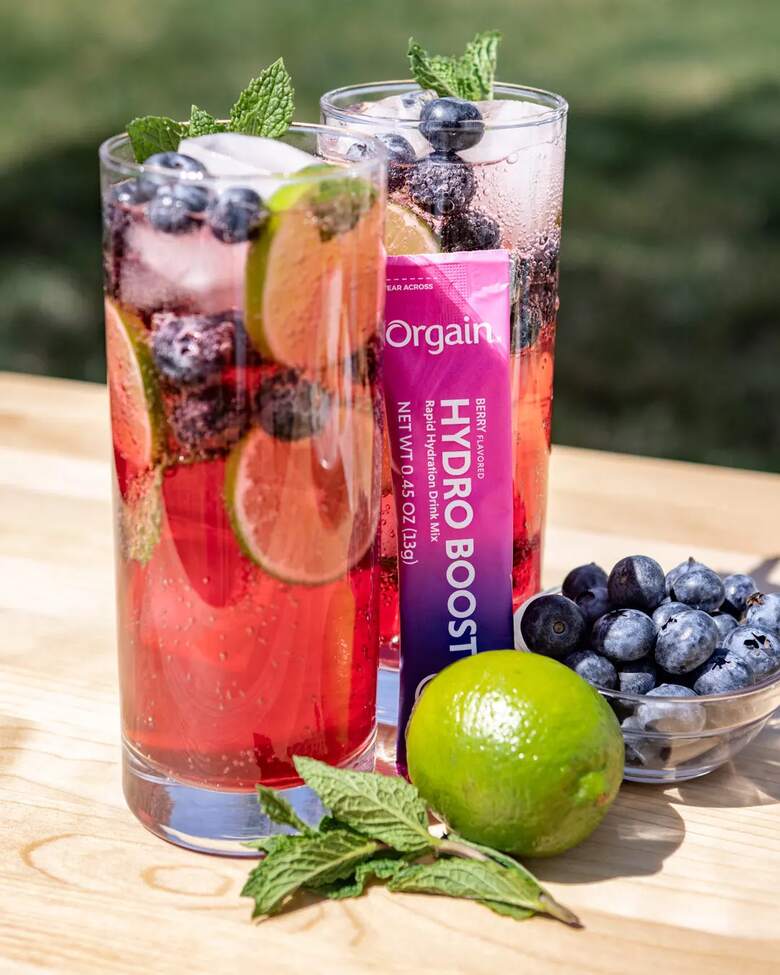
Some users aren't too happy with the taste, describing it as "just OK", too sweet or too salty. However, this is only a relative disadvantage, because you can affect the taste and saltiness of the drink by mixing the electrolyte powder with different volumes of water. In order to get a not too salty rehydrating drink, you should mix one stick in ~650-700 ml of water.
Orgain's Hydro Boost offers a clean electrolyte powder option with organic ingredients, available in convenient stick packs and various flavors, making it a suitable choice for those seeking a low-carb and organic hydration solution.
Positives:
Could be better:
10. Hydrasurge by Jacked Factory – Best Low Sodium
- Form: Powder
- Flavors: Watermelon, Fruit Punch, Strawberry Kiwi
- Key Ingredients: Sodium
- Additional Ingredients: Potassium, Magnesium, Phosphorus, Calcium
- Sodium per Serving: 125 mg
- Servings: 60 servings
- Company Founded: 2015
- Recommended by Athletes: Ryan Shea, Gabby Cohen, Antwan
HYDRASURGE by JACKED FACTORY completes this best-of ranking. Each serving contains 125 mg of sodium, so together with Hydra-Charge® by Kaged, it is one of the healthiest electrolyte powders for the average fitness enthusiast in the sense that it contains a small amount of sodium per serving.
Thus, it can be a suitable choice for those who don't want to drink plain water during training, and want to give it at least some taste.
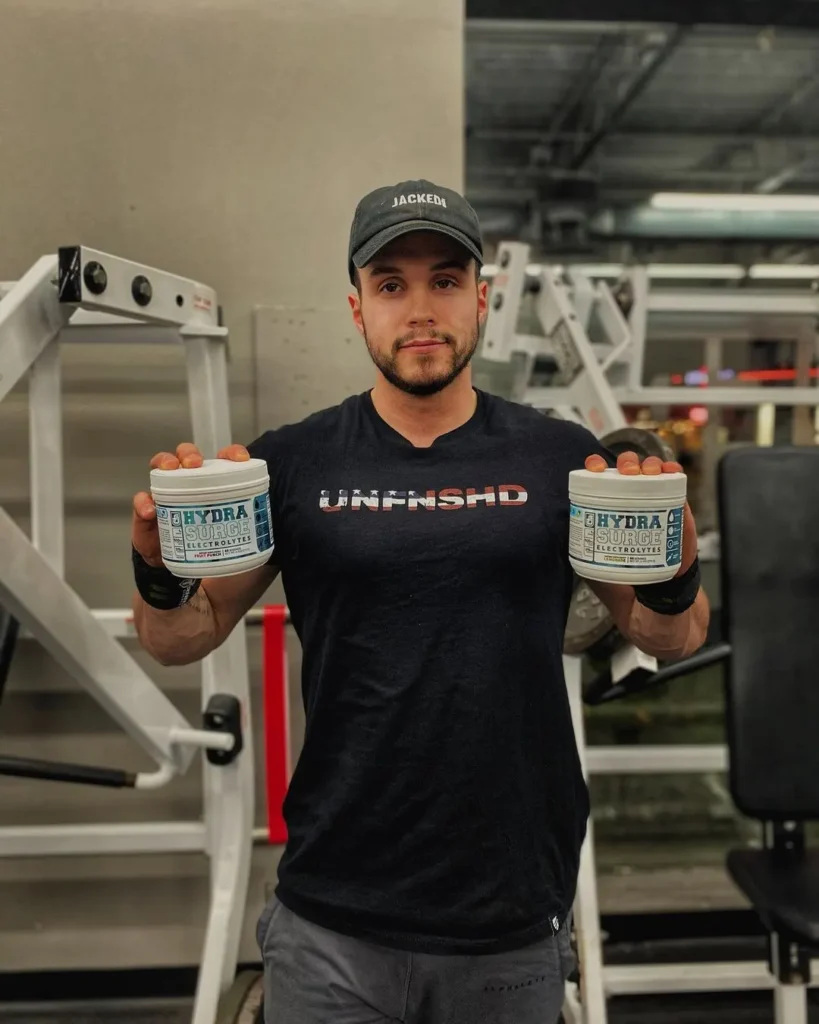
In addition to sodium, this product also contains some potassium, magnesium, phosphorus, calcium, and 1 g of taurine. HYDRASURGE does not contain artificial sweeteners, only stevia, which is a naturally sourced sweetener.
HYDRASURGE by JACKED FACTORY offers a low-sodium electrolyte powder option with additional essential minerals and taurine, making it a favorable choice for individuals seeking a flavored hydration solution without artificial sweeteners.
Positives:
Could be better:
What Are Electrolytes and Why Are They Important?
Electrolytes are chemicals that perform many functions in our body, including maintaining fluid balance and hydration, as well as transmition of electrical impulses in neurons and muscles. For example, sodium, calcium, and potassium help our muscles contract. Living systems contain many electrolytes, but only 6 of them are the most important in the context of supporting the functions of our body.
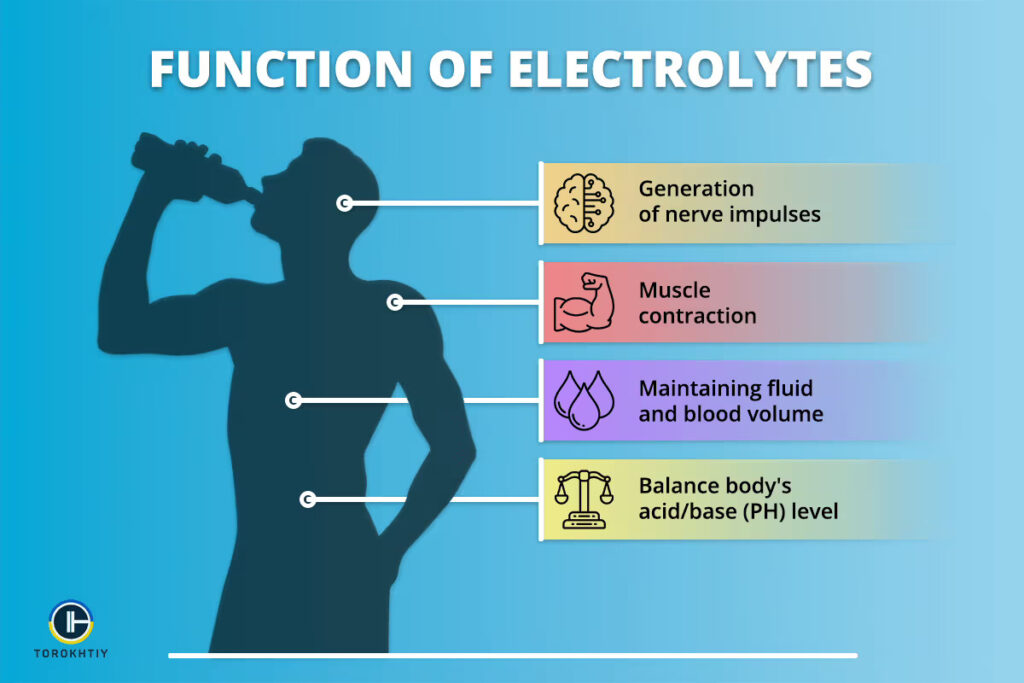
Electrolytes are lost through sweat during prolonged physical exertion, so the general idea of taking this type of supplement is to restore their losses. At least, the manufacturers of these supplements want us to think so. However, in reality, it makes sense to consider electrolyte supplements only for certain subgroups of the population, which I will talk about below.
By the way, in case you are looking for electrolyte vitamins. This makes no sense, because despite the fact that some vitamins take part in the conduction of nerve signals (for example, thiamine or vitamin B1), they are not electrolytes. It is the minerals that carry an electric charge.
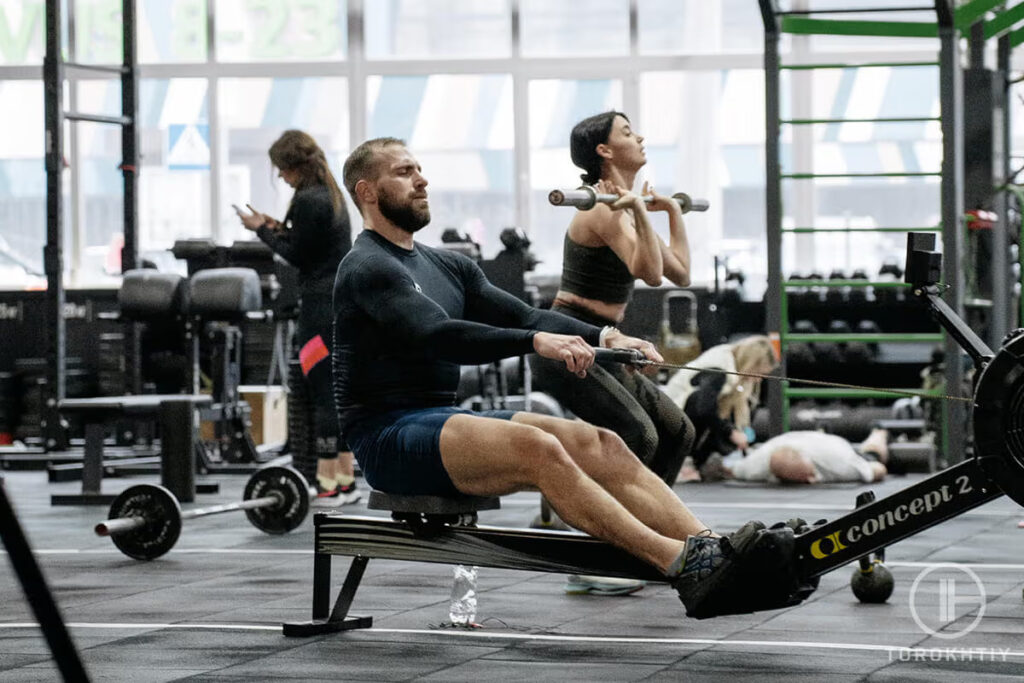
What Is Exercise-Associated Hyponatremia and Why Are Electrolytes Involved?
An electrolyte that receives special attention in scientific literature is sodium, with a special emphasis on athletes who train for ultra-endurance or engage in other sports (for example, team sports), when training is prolonged, high-intensity, and takes place in conditions of heat and / or high humidity.
In these sports and especially under such environmental conditions, sweat losses can be sufficient to cause excessive water / electrolyte imbalances.
Obviously, athletes (as well as the average fitness enthusiast) drink water to prevent dehydration. However, when athletes consume too much fluid (when water intake exceeds sweat loss), conditions are created for a decrease in sodium concentration in the blood (sodium can be diluted). If this happens, a dangerous condition called exercise-associated hyponatremia may develop. This is a potentially fatal condition.
Our expert Jacek Szymanowski added:
"Drinking too much water can kill."
However, do not rush to diagnose yourself with hyponatremia and order an electrolyte supplement! Many manufacturers of these products build too much hype, describing electrolytes supplements in such a context as if they are actually necessary for the average fitness enthusiast. The fact is that hyponatremia is only common among people who exercise for many hours in a row and drink hypotonic drinks in quantities that exceed sweat losses.
Therefore, if you're the average fitness enthusiast, or a short distance runner, or just don't train intensely for hours in a row (especially in heat and/or high humidity), you don't need this type of supplement at all!
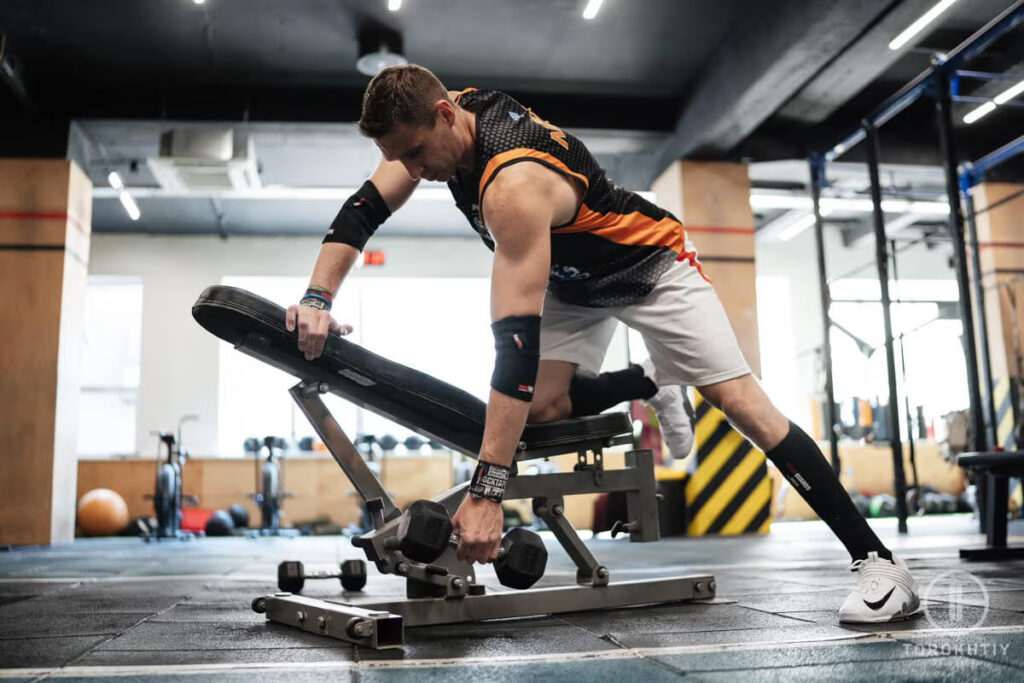
In What Situations Are Electrolyte Supplements Actually Needed?
Since hyponatremia was mainly observed during or after prolonged physical exertion for 4–6 h or longer, it is in these cases that the addition of an electrolyte mix into routine is the most justified. However, it is important to understand that the key risk factor for hyponatremia is excessive fluid intake (including sports drinks, water, and other hypotonic to plasma solutions) that exceeds fluid loss through sweat.
Yes, sodium in an electrolyte supplement that can attenuate the fall in blood sodium concentrations. But since such drinks usually contain a lower concentration of sodium compared to plasma, the protective effect of sodium in these types of supplements is still insufficient in conditions of excess fluid consumption.
For these reasons, first priority should be given to fluid intake before, during and after prolonged exercise, rather than electrolyte supplements.
Jacek Szymanowski further mentioned:
"Drinking coffee does not dehydrate you."
In general, the use of electrolyte supplements appears to be justified for very long bouts of exercises (from 4 hours or more). However, there may be exceptions. According to this scientific paper, adding sodium to the drink is justified in case of large sweat losses even when the exercise lasts 2 hours.
For example, if you are an American football player, or a military or police officer, who trains for 2 hours in the heat and loses a big amount of sweat (especially if the sweat tastes salty and leaves white marks on clothes), electrolyte supplements can still be useful.
I want to pay special attention to American football players. They have a lot of muscle mass, often practice in hot temperatures, wear protective clothing (which not only makes evaporation more difficult, but also adds weight) and perform a lot of explosive physical work.
And the more force is produced, the more heat is produced! All this creates conditions for extremely high sweat losses. Therefore, for some sports, even if training lasts less than 4 hours, additional electrolytes can still be useful.
| Do you need electrolyte supplementation? | |
|---|---|
| Exercising for less than 2 hours (recreational fitness / average fitness enthusiast) | Most likely NO |
| Events lasting for about 2 hours without profound sweating and salty sweet / white spots on clothes | Most likely NO |
| Events lasting for 2 hours or more in hot and / or humid environment, with profound sweating or salty sweat / white spots on clothes | Likely YES Consider under the supervision of experienced sports nutritionist |
| Events lasting for 4 hours or more in hot and / or humid environment, with profound sweating or salty sweet / white spots on clothes | Most likely YES Consider under the supervision of experienced sports nutritionist |
| Ultra-endurance events lasting for 6 hours or more (triathlons, ultra-marathons (≥100km), multi-stage ultra-marathons, cross-country skiing) | YES Consider under the supervision of experienced sports nutritionist |
In any case, even in situations when electrolyte supplements may be needed, a personalized plan of fluid intake is needed first. Remember that the most common cause of exercise-induced hyponatremia is excessive fluid intake!
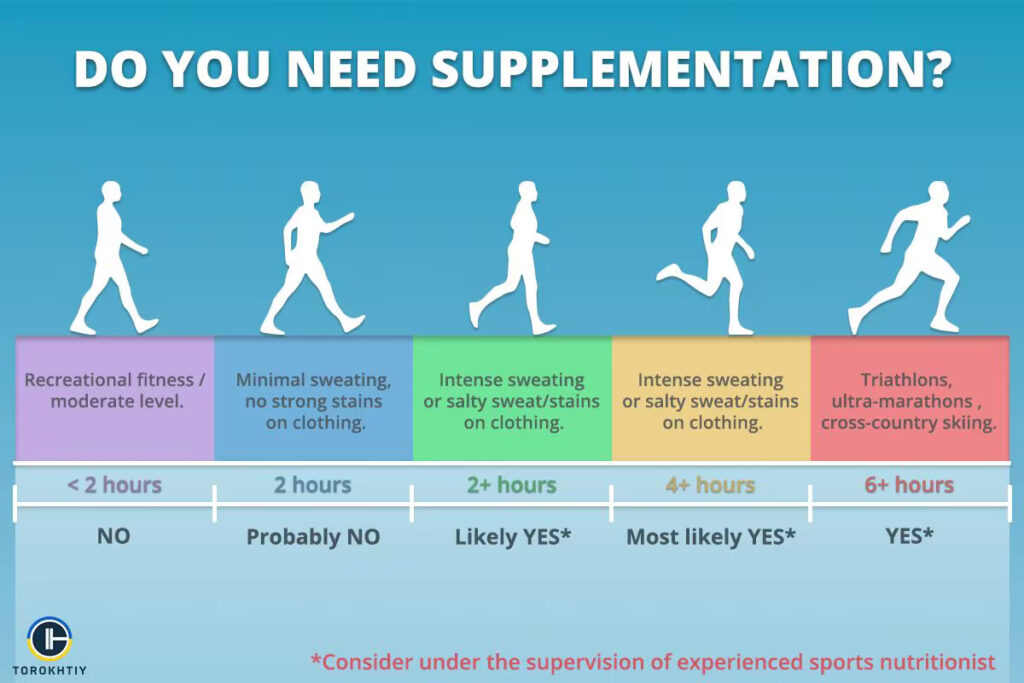
When Might the Use of Electrolytes Be Justified for the Average Gym Goer?
In my opinion, the only real reason to use an electrolyte mix for those who train for less than 2 hours, including the average fitness enthusiast, is reluctance to drink plain water during exercise due to the lack of taste. If you want to improve the palatability of plain water, then you can use an electrolyte mix.
However, in this case, you don't need supplements with a lot of sodium per serving. You can either use supplements with the lowest amount of sodium per serving (say, 100-130 mg), or use only a third or fourth of the recommended serving size if it contains 500 mg of sodium or more. For example, HYDRATE from Transparent Labs can be used this way. In this case, you can stretch one package for many weeks or even months!
Our expert Jacek Szymanowski stated:
"If you need fuel get one with carbs, if you don't get electrolytes without kcal. My personal choice - ISOSTAR! It doesn't have potassium in it, but it contains a significant amount of carbohydrates and when you use it properly it becomes an actual isotonic - not hypo/hypertonic - which hydrates you well. So when it comes to electrolyte powder I'd make sure I can (they provide instructions how to) prepare isotonic drink.
In the powdered form they don’t use aspartame - which I don’t like personally. The taste of orange and fresh is awesome and that is why I’m biased haha 😀"
Why Is It Impossible to Develop Clear Recommendations for the Use of Powdered Electrolytes?
It is extremely difficult to provide a single one size fits all recommendations or even rough guidelines for adequate fluid and electrolyte intake (with particular emphasis on sodium) for athletes. The fact is that the loss of fluid and electrolytes (sodium) and, accordingly, the need for their replenishment are influenced by many different factors.
1. Duration and Intensity of Exercises
The longer and more intense the exercise, the more sweat we lose. The level of physical readiness for the specific type, intensity and duration of exercise also affect sweat and sodium losses.
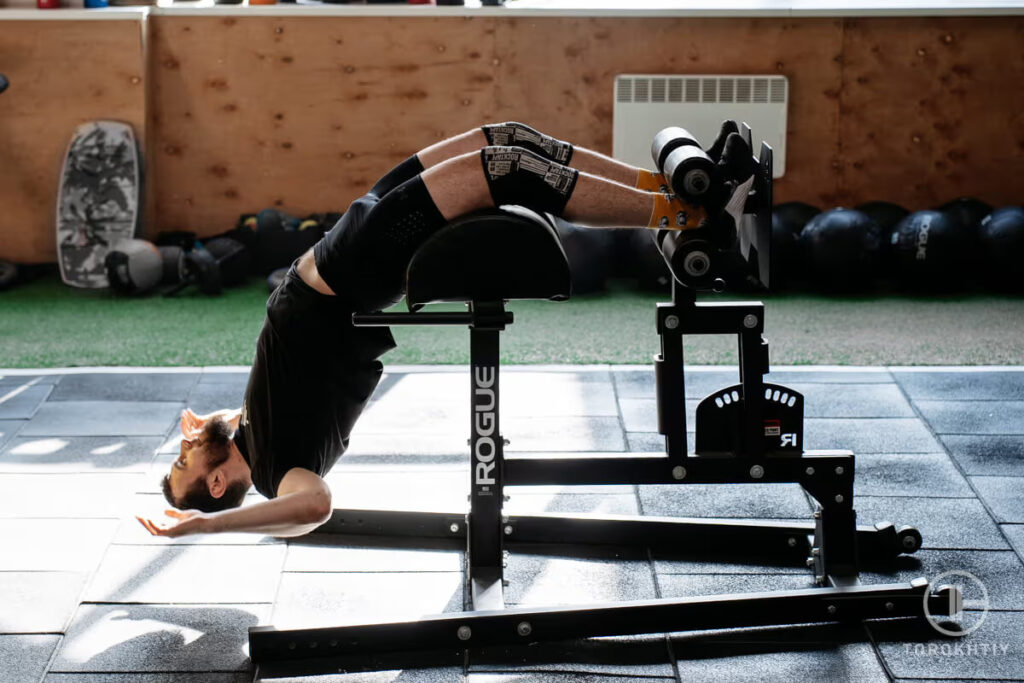
2. Individual Variability in Sweat and Sodium Losses
The degree of sweating and loss of sodium in sweat varies greatly between individuals. For this reason all estimates regarding average sweat and sodium losses per hour are not very practical, because due to the large individual variability in the degree of sweating and sodium losses, the fluid intake protocol and the feasibility of using electrolytes must be considered for each individual athlete.
3. Environmental Conditions
In conditions of high temperatures and/or high humidity we lose more sweat. Great cold can also be a risk factor for the development of hyponatremia, especially in the USA.
Even the degree of acclimatization affects sodium balance. Sweat glands reabsorb sodium, and heat acclimatization improves this ability. Therefore, heat acclimatized individuals lose less sodium with sweat for any given sweating rate.
4. Clothes and Equipment
One of the most striking examples is American football players, who wear protective clothing, which only further contributes to profuse sweating and loss of electrolytes.
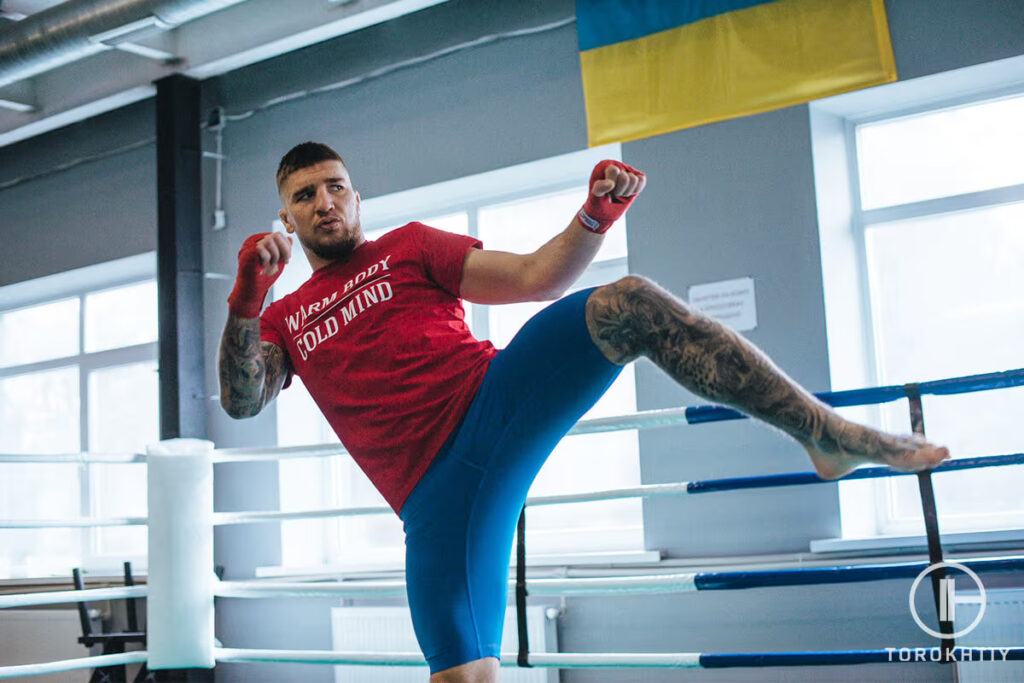
5. Considering All Factors Together
In the end, all the factors listed above must be taken into account when developing an appropriate protocol for fluids and electrolyte intake for an individual athlete.
It is necessary to take into account duration and intensity of exercises, individual sweating rate, as well as the temperature, humidity, degree of acclimatization (if necessary) and other factors of the individual athlete. For example, fluid and supplemental sodium requirements for the same athlete running the same distance but in different climates can be very different.
Average gym goers or people who engage in recreational fitness should consider the recommendations for salt / sodium intake for adults. The American Heart Association does not recommend more than 2,300 mg of sodium per day. So if you want to add an electrolyte supplement to your workout drink, you need to consider the amount of sodium!
So don't be surprised when I say that hydration and electrolyte strategies before, during, and after exercise should be developed and customized for an individual athlete under the guidance of a sports nutritionist who has deep knowledge in sports science. Carbohydrates should be taken into account as well, which are also an important part of the overall rehydration and refueling plan for endurance and ultra-endurance athletes.
The funny thing is that the average fitness enthusiast who doesn't exercise in the heat for several hours shouldn't be Googling "best hydration packets" at all. However, many manufacturers of this type of supplement try to justify their use for this subcategory of the population.
At the same time, amateur or professional athletes who train for many hours (especially in conditions of heat and large losses of "salty" sweat) should contact a professional sports nutritionist to develop a personalized plan for rehydration and restoration of electrolyte balance.
Moreover, the symptoms of Exercise-Associated Hyponatremia can be confused with the symptoms of heat exhaustion and other conditions, so self-diagnosis and self-treatment can be dangerous, because different conditions may require completely different methods of treatment.
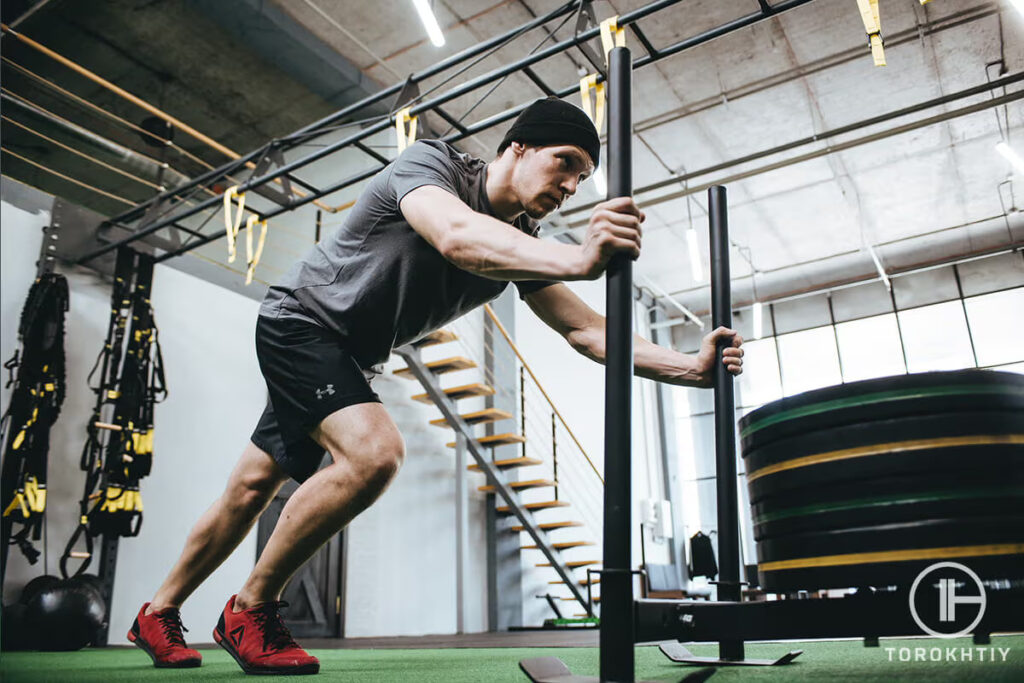
How to Choose the Best Electrolyte Powder When It Can Actually Be Useful?
Hyponatremia is not something to play around with. On the other hand, using electrolytes (especially with high sodium per serving) without understanding all of the factors listed above also has its risks.
Therefore, the best and safest decision when choosing this type of supplement is to consult with a sports dietitian who will take into account all the details and create an individualized plan for hydration and replacement of lost electrolytes (if necessary).
It is extremely difficult to give generalized and universal recommendations. However, below I will list some key points to help you better navigate this type of supplement.
1. Amount of Sodium per Serving
Key attention should be paid to the sodium content per serving. This will allow you to choose the necessary concentration of sodium per liter of liquid when you need to mix such a drink.
The difficulty lies in the fact that for each individual task, a different amount of sodium may be required in a different ratio to the volume of liquid. For example, hyperhydration may be necessary prior to the start of a prolonged event in which large sweat losses are expected, but cannot be practically replaced.
In this case, an extremely high concentration of sodium in the pre-event drink (as close as possible to the plasma concentration) may be required. In another situation, when pre-exercise hyperhydration is not required, but the athlete consumes a drink during exercise, the sodium concentration in the beverage should be much lower.
Therefore, I emphasize once again that you should not play with electrolyte supplements without expert supervision.
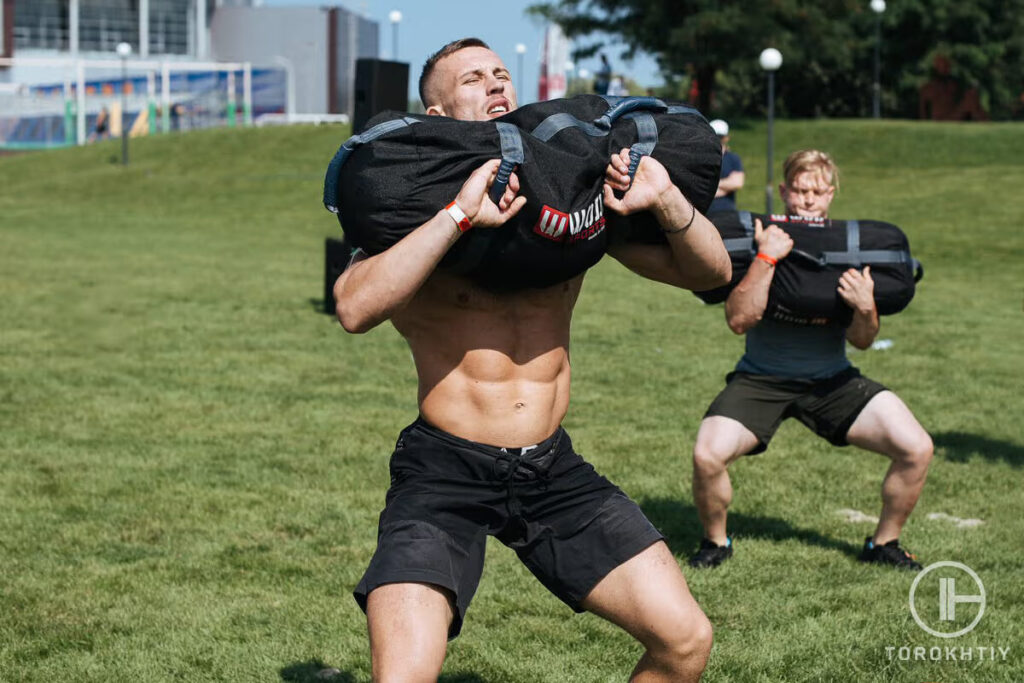
2. The Presence of Carbohydrates
Sports drinks and electrolyte supplements should be separated. The former usually contain a significant amount of carbohydrates per serving, as well as electrolytes, but in a lower concentration. This type of supplement allows not only rehydration due to fluid and electrolytes, but also to refuel due to a significant amount of carbohydrates (although there are also low-sugar or sugar-free options).
They are a quick source of fuel to maintain physical performance during exercise, especially when they last 1 hour or more. Electrolyte supplements, on the contrary, may contain 4 times higher concentration of electrolytes, but less carbohydrates. Look at the picture below.
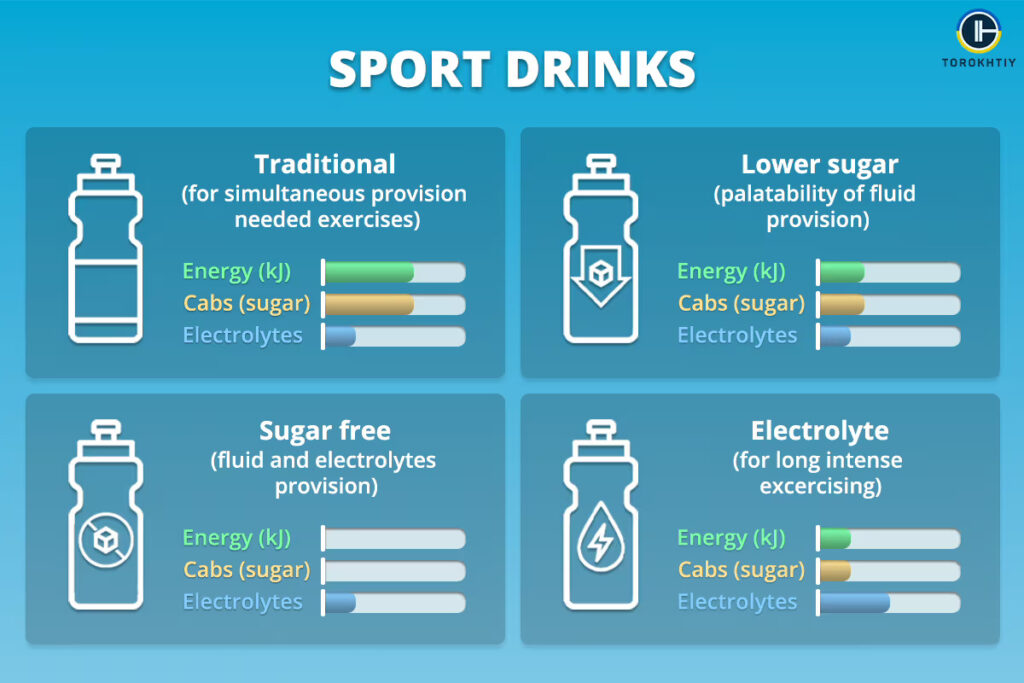
Traditional sports drinks - for exercises that require the simultaneous provision of a significant amount of carbohydrates, fluid and electrolytes.
Lower sugar sports drinks and “Sugar free” drinks - to provide palatability of fluid. Mainly provide fluid and electrolytes.
Electrolyte drink - for targeted replacement of fluid and electrolytes (particularly sodium and potassium) along with large sweat losses (especially "salty" sweat), as well as for special tasks (for example, hyperhydration before prolonged exercises or restoration of moderate-large fluid deficits that occurred during exercises).
The average fitness enthusiast usually does not understand the difference between these types of supplements. For this reason, on various online stores, you can find reviews from dissatisfied users regarding the presence of added sugar in the electrolyte supplement they purchased.
However, each of these supplements has its own purposes. Therefore, it is necessary to understand exactly what type of product you need and study its composition before buying.
This electrolyte powder review features both electrolyte supplements (without or with a small amount of carbohydrates per serving) and powders that contain a significant amount of carbohydrates and are suitable for the role of sports drinks.
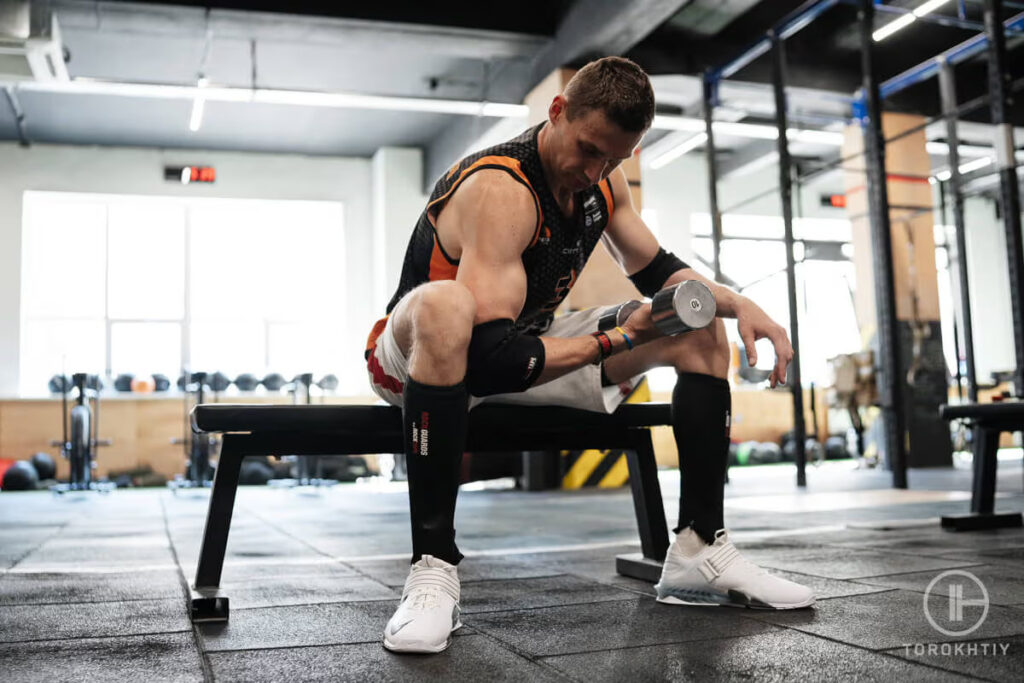
3. Taste and Saltiness
Drinks with a too high concentration of sodium do not taste very good and therefore can prevent the desire to drink during prolonged exercise bouts. Therefore, with the help of a sports nutritionist, it is important to find a balance between the restoration of lost fluids and electrolytes in such a way as not to harm either physical performance or health.
Below you will see a summary table of the products included in this review. So it will be easier for you to understand which situations each product is suitable for. However, keep in mind that the table is based on the amount of sodium per serving, which is set by the manufacturer.
In fact, you can use any product to sweeten your water (for the average gym goer), just by reducing the amount of powder you add (go for ~100-150 mg of sodium for the entire volume of water in your bottle).
| Product | Average gym goers (to improve palatability of plain water) | Events lasting for 2 hours or more in hot and / or humid environment, with profound sweating | Events lasting for 4-6 hours or more, especially in hot and / or humid environment, with profound sweating | For use as a carbohydrate-based sports drink |
|---|---|---|---|---|
| Transparent Labs | NO | CAN BE USED | YES | NO |
| BPN Electrolytes | NO | CAN BE USED | YES | NO |
| Promix | NO | NOT THE BEST CHOICE | YES | NO |
| Gnarly Nutrition | NOT THE BEST CHOICE | CAN BE USED | NOT THE BEST CHOICE | NOT THE BEST CHOICE |
| SIS Electrolyte | NO | CAN BE USED | YES | YES |
| Skratch Labs | NO | CAN BE USED | CAN BE USED | CAN BE USED |
| Naked Nutrition | NO | CAN BE USED | NOT THE BEST CHOICE | NOT THE BEST CHOICE |
| Kaged | YES | NOT THE BEST CHOICE | NO | NO |
| Orgain | NO | CAN BE USED | NOT THE BEST CHOICE | NOT THE BEST CHOICE |
| Jacked Factory | YES | NOT THE BEST CHOICE | NO | NO |
FAQ
Is It Ok to Drink Electrolyte Powder Everyday?
In general, it makes sense to take this type of supplement only on days with long and intense exercise bouts. Also, electrolytes can be used several days in a row if you are running multi-stage ultra-marathons. For the average gym-goer, daily use of this supplement is useless.
A possible exception would be to add a small amount of powder to plain water to improve palatability and thus force yourself to drink more fluids, especially if you live in a hot climate with high humidity.
What Are the Negatives of Electrolyte Drinks?
There are several possible disadvantages: unnecessary expenses; reducing the drink's palatability and gastrointestinal symptoms due to excess sodium in the drink; the risk of developing hypertension in susceptible people (especially due to the use of electrolyte supplements by people engaged in recreational fitness).
It is important to understand that the electrolyte needs of the average person who trains for 1-1.5 hours in a temperate climate (or indoors) and athletes who train for 2 or more hours in hot and/or humid conditions, losing huge amounts of sweat and sodium, are very different.
Can Drinking Too Much Water Cause Low Electrolytes?
In fact, excessive fluid intake during prolonged exercise is considered a key factor that increases the risk of developing exercise-associated hyponatremia. Therefore, first of all, you need to have an individualized protocol for drinking water before, during and after prolonged exercises.
What Is the Best Form of Electrolytes to Take?
This type of supplement is available as a powder, tablets, ice blocks or ready-to-drink beverages. The optimal form should be chosen depending on the specific task and period (before, during or after the event), as well as the type of sport.
Different forms and different concentrations of electrolytes can be used for hyperhydration before exercise in hot environments (before the start of the event) or for rapid rehydration after an exhausting and prolonged event.
At the same time, not all forms are suitable for use during sport events. For example, for cyclists, the most convenient form would be a ready-to-drink electrolyte beverage or a powder from which such a drink can be pre-mixed. Whereas for athletes who have the opportunity to take a break, tablets may also be suitable.
Conclusion
Electrolyte supplements can be used during prolonged exercise lasting 4 hours or more. Also, their use can be considered during training bouts lasting 2 or more hours in conditions of high exercise intensity, heat and large losses of salty sweat. For people who fall into these categories, it is important not to drink too much fluid during exercise to minimize the risk of hyponatremia.
As for the best electrolyte powder, HYDRATE from Transparent Labs took first place. It may be suitable for preparing solutions for events lasting a minimum of 4 hours, or for some special occasions and sports (where exercises last less than 4 hours). It is best to contact a sports nutritionist who will take all factors into account and develop a personalized hydration protocol.
If you are the average gym goer exercising for less than 2 hours, the only reason to consider this type of supplement is to improve the taste of plain water. However, in this case, you need to choose products with a low dosage of sodium per serving (for example, ~100-150 mg of sodium), or reduce the serving size of powder specified by the manufacturer.
Do you use electrolyte supplements? Share your impressions in the comments!
Also read:
- Best Magnesium for Muscle Recovery
- Best Ashwagandha Supplement
- Best Magnesium for Muscle Cramps
- Best Nitric Oxide Supplements
- Best Post Workout Drink
- Best Tasting Bcaa
- Powerlifters Diet
- Best Electrolyte Drink for Leg Cramps
- Eaa vs Bcaa
- Best Sports Drinks
References:
- Eleftherios Veniamakis "Effects of Sodium Intake on Health and Performance in Endurance and Ultra-Endurance Sports" Int J Environ Res Public Health. 2022 Mar; 19(6): 3651.
- AIS "Electrolyte supplement" https://www.ais.gov.au/nutrition /supplements/group_a (accessed August 30, 2023).
- Pasquale Strazzullo "Sodium" Adv Nutr. 2014 Mar; 5(2): 188–190.
- Margaret Ashwell "Stevia, Nature’s Zero-Calorie Sustainable Sweetener" Nutr Today. 2015 May; 50(3): 129–134.
- AIS "Ais Sports Supplement Framework" https://www.ais.gov.au/__data /assets/pdf_file/0006/1001103/ Electrolytes-Infographic.pdf (accessed August 30, 2023).
- Open Educational Resources "Electrolyte Balance" https://open.oregonstate. education/aandp/ chapter/26-3-electrolyte-balance/ (accessed August 30, 2023).
- NIH "Thiamin" https://medlineplus.gov/ ency/article/002401.htm (accessed January, 19 2023).
- Lindsay B. Baker "Sweating Rate and Sweat Sodium Concentration in Athletes: A Review of Methodology and Intra/Interindividual Variability" Sports Med. 2017; 47(Suppl 1): 111–128.
- Hew-Butler "Statement of the Third International Exercise-Associated Hyponatremia Consensus Development Conference, Carlsbad, California, 2015" Clinical Journal of Sport Medicine 25(4):p 303-320, July 2015.
- Susan M Shirreffs "Fluid and electrolyte needs for training, competition, and recovery" J Sports Sci. 2011;29 Suppl 1:S39-46.
- Kelly A. Barnes "Normative data for sweating rate, sweat sodium concentration, and sweat sodium loss in athletes: An update and analysis by sport" Pages 2356-2366 22 Jun 2019.
- W. Larry Kenney "Dietary Water and Sodium Requirements for Active Adults" Sports Science Exchange Volume 17 (2004) Number 1.
- Beat Knechtle "Exercise-Associated Hyponatremia in Endurance and Ultra-Endurance Performance–Aspects of Sex, Race Location, Ambient Temperature, Sports Discipline, and Length of Performance: A Narrative Review" Medicina 2019, 55(9), 537.
- "Exercise and Fluid Replacement" Medicine & Science in Sports & Exercise 39(2):p 377-390, February 2007.
Why Trust Us?
With over 20 years in Olympic Weightlifting, our team does its best to provide the audience with ultimate support and meet the needs and requirements of advanced athletes and professional lifters, as well as people who strive to open new opportunities and develop their physical capabilities with us.
All products we select are primarily approved and tested by the Olympic Weightlifting Champion Oleksii Torokhtiy. Under his guidance, we provide honest and reasonable assessments of the products we review by checking their characteristics, packaging, design, comfort and durability features, and general product rating. We select products from only high-quality and trusted sports brands, thus vouching for their quality.
The product testing process is described in more detail here
Author: Oleksandr Maksymenko
Certified Sports Nutritionist,
MSc Sports Dietetics
Specializing in: Weight management, Fitness / Sports nutrition
Oleksandr is a professional fitness nutritionist certified by the Fitness Professional Association (FPA). He follows the principles of evidence-based dietetics and fosters a healthy relationship with food in his clients, ensuring there are no strict prohibitions on their favorite foods or frequent lapses. His primary goal is not only to achieve results for you but also to sustain them over the long term, all while enjoying tasty and delicious food.
Reviewed by: Jacek Szymanowski
Certified Nutritionist,
M.Sc.Eng. Biotechnology
Performance architect,
Strength and Conditioning Specialist
With over 30 years of fighting experience, specialization in nutrition coaching for athletes, and expertise in metabolic health and dietary strategies, Jacek offers a comprehensive approach to optimizing your performance and well-being. Backed by a Master of Science degree in Biotechnology, Jacek remains at the forefront of scientific advancements, ensuring that his coaching is always evidence-based and up-to-date.
If you have any questions/suggestions/any other inquiries considering product reviews, you can reach out to us via email – [email protected]

